Nobel Peace Prize laureate Kailash Satyarthi, a pioneering advocate for children’s rights, will deliver the commencement address at Maharishi International University on June 21.
Satyarthi’s life’s work — freeing more than 130,000 children from forced labor and trafficking — has inspired awareness campaigns and policy changes internationally, elevating child labor to a prominent issue on the global human rights agenda.
As part of the commencement ceremony, Satyarthi will receive a Doctorate of World Peace honoris causa, saluting his lifetime of courageous activism against child labor and exploitation and his global advocacy for education as a fundamental human right.
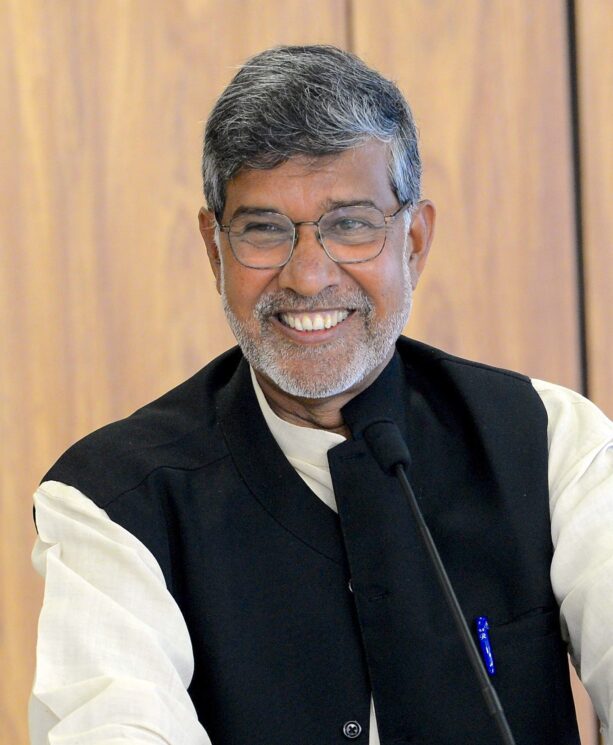
MIU President Dr. Tony Nader met Satyarthi in Abu Dhabi last February when both were featured speakers at a major global event, Indiaspora Forum for Good 2025, and they immediately began discussing ways to collaborate.
“Kailash Ji’s great work in the world reflects humanity’s highest ideals in action,” President Nader said. “His immense compassion flows from his sense of unity with everything and everyone. When he sees someone else needing help, it’s as if he himself needs help. He sees others as part of him. This is the hallmark of a highly developed consciousness.”
Born in 1954 in Vidisha, India, Satyarthi began his career as an electrical engineer. But in 1980, at age 26, he abandoned his lucrative job to confront the systemic issue of child labor.
That same year, he founded Bachpan Bachao Andolan (Save Childhood Movement), India’s first mass movement to combat child servitude. Through daring rescue operations, policy advocacy, and rehabilitation programs, his organization has liberated thousands of children from industries such as carpet weaving, fireworks manufacturing, and brick kilns.
Satyarthi’s activism extends beyond direct interventions. In 1994, he launched Rugmark — now GoodWeave International — a certification initiative ensuring that carpets are produced without child labor. This program has reduced child labor in India’s carpet industry by 80% and has empowered consumers to make ethical choices and pressured industries to adopt child-labor-free practices.
In 1998, he led the Global March Against Child Labour, a monumental 80,000-kilometer journey across 103 countries. This movement culminated in the International Labour Organization adopting Convention No. 182, targeting the worst forms of child labor.
Satyarthi’s efforts were internationally recognized in 2014 when he shared the Nobel Peace Prize with Malala Yousafzai. (Yousafzai, whose advocacy for human rights and the education of women and children in Pakistan grew into an international movement, was 17 when she won the Nobel Peace Prize, making her the youngest Nobel Laureate in history.) The Nobel Committee honored Satyarthi’s and Yousafzai’s “struggle against the suppression of children and young people and for the right of all children to education.”
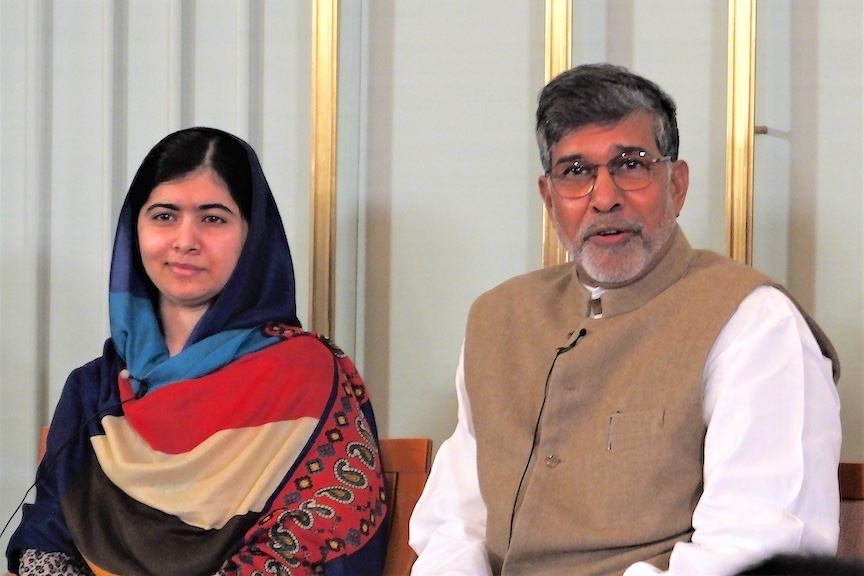
Satyarthi’s work is driven by a profound belief: “If a child is denied education and forced to work instead, violence has been inflicted.” This conviction fuels his ongoing mission to eliminate child exploitation and ensure every child’s right to education.
“I see a wonderful collaboration. Sri Kailash Ji deeply recognizes the importance of developing consciousness as a way to cultivate compassion.”
— MIU President Dr. Tony Nader
“I see a wonderful collaboration,” Dr. Nader said. “Sri Kailash ji deeply recognizes the importance of developing consciousness as a way to cultivate compassion. He understands that genuine compassion arises from broad comprehension, and broad comprehension comes from a developed state of consciousness. We are completely in tune with each other on this understanding and many others.”
More than 160 million children worldwide — nearly 1 in 10 worldwide — remain trapped in labor, with half in hazardous work — a problem Satyarthi links to poverty, corruption, and consumer indifference. This number is down from the 246 million child laborers in 2000, but progress has been uneven and has recently stalled or reversed in some regions.
“Child slavery is a crime against humanity,” Satyarthi said. “Humanity itself is at stake here. A lot of work still remains, but I will see the end of child labor in my lifetime.”
Kailash Satyarthi and MIU’s Dr. John Hagelin were part of the same closing panel at the World Summit of Nobel Peace Laureates in Monterrey, Mexico, last September, where Dr. Hagelin spoke about MIU’s Consciousness-Based approach to world peace.
* * * * *
PHOTOS — Banner photo by Pierre Albouy, licensed under the Creative Commons Attribution-NonCommercial-NoDerivs 3.0 IGO License | Next photo by Wilson Dias/Agência Brasil, licensed under the Creative Commons Attribution 3.0 Brazil license | Next photo by Bair175, licensed under the Creative Commons Attribution-Share Alike 4.0 International license.
Maharishi School was named the most successful school at the State Science and Technology Fair of Iowa, held March 26-27 in Ames, Iowa, winning the prestigious Claison “Clay” Groff Memorial Traveling Trophy.
From throughout Iowa, 636 junior and senior high school students representing more than 77 schools and 38 counties exhibited more than 500 projects, competing for prizes, awards and scholarships.
“This is a dream come true,” said science fair advisor Asha Sharma, who has guided students to the competition since 2018.
“We were competing against schools 50 times our size,” said Dr. Richard Beall, head of the school. “We have had a long history of success in science and STEM-related activities. But this is the first time in the 20-year history of the award that we were recognized as the most outstanding school. This is a tribute to the enthusiasm our teachers generate and to the students’ own natural curiosity and determination in exploring questions of interest.”
In addition to the all-school honor, four students claimed top awards, with three advancing to the Regeneron International Science and Engineering Fair (ISEF) in May.
Students shine with groundbreaking research
“My research developed a low-cost, noninvasive test to detect tau proteins — key biomarkers for Alzheimer’s disease — using tear fluid and molecularly imprinted polymers instead of antibodies. By incorporating these polymers into colorimetric lateral flow strips, the study offers a promising alternative to traditional, invasive diagnostic methods, with potential for widespread, early detection in underserved populations.”
— Antariksha Sharma
Antariksha Sharma, named grand champion of the science fair for her innovative Alzheimer’s research, won first place in the Biochemistry category, won the Iowa Biotech Scholarship, won the “Six Year Dedication to Science Award, and was named a finalist to the International Science and Engineering Fair. She discovered a way to detect early signs of neurological degeneration by measuring the level of a key protein in a person’s tears. This can potentially give people a quick, low-cost way to determine whether they need additional testing.
“This project developed a data-driven mentor-mentee matching system that connects trauma-exposed youth with mentors who share similar lived experiences, aiming to foster emotional growth and resilience. Early findings show that trauma-informed mentorship improves trust, engagement, and well-being, with plans to expand the program using AI-powered analysis and scalable implementation strategies.”
— Trent Heffner
Trent Hefner won top honors in Behavioral and Social Sciences, was also a ISEF finalist, and was a Grand Honorable Mention for his project entitled “Empathy-Powered Pairing.” Inspired by his own experiences, Trent developed a trauma-informed algorithm to match at-risk youth with mentors who overcame similar struggles.
Sohni Singh came home with an armload of awards. She won the first place award in Physics and Astronomy. She won the Iowa Special Award from the Iowa State University Center for Nondestructive Evaluation, which recognizes outstanding achievements in the field of nondestructive evaluation (the science of detecting flaws and imperfections in materials to ensure their structural integrity without causing damage). And she won a $1,000 scholarship from Loras College. Her research grew out of her concern about EMF radiation, specifically radiofrequency radiation emitted by cell phones. Sohni tested commercial cell phone cases for their claimed ability to block radiofrequency exposure. She also created a phone case of her own using simple materials like aluminum foil — and found its protection comparable to store-bought varieties.
Xiaohan Wang was the Biochemistry second-place winner and an ISEF finalist. Xiaohan studied green tea’s potential to prevent cognitive decline in aging populations. Besides being a lover of green tea, he was motivated to discover an affordable way to prevent dementia.
Of the twelve competition categories, Maharishi School won three and placed second in a fourth.
Next stop: international competition
Antariksha, Trent, and Xiaohan will compete at the ISEF in Columbus, Ohio, joining peers from 64 countries. The event includes rigorous judging, a college recruitment fair, and social activities like a DJ-powered student mixer.
With the school trophy and standout student achievements, Maharishi School continues to make its mark in STEM excellence.

See the list of award winners here.
Photos: Banner photo by Andy Hallman, Southeast Iowa Union. Other photos by Asha Sharma.
A major new study co-led by MIU researchers and published in Frontiers in Medicine has found that practicing Transcendental Meditation® (TM) can significantly reduce heart attacks, strokes, and deaths in people at high risk for cardiovascular disease.
The randomized controlled trial, funded by the National Institutes of Health (NIH), followed 200 Black men and women in Los Angeles — an underserved population disproportionately affected by heart disease. Over a five-year period, participants practicing TM experienced a 65% reduction in major adverse cardiovascular events compared to those who received standard health education.
A replication study with powerful results
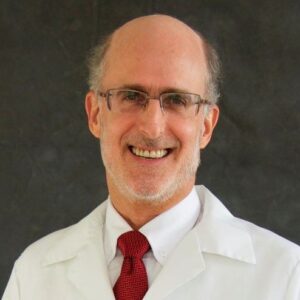
“This is one of the largest and longest studies of its kind,” said senior investigator Dr. Robert Schneider, MD, FACC, Distinguished Professor of Integrative Medicine and Health and Director of MIU’s Center for Natural Medicine and Prevention. “Our findings replicate and extend earlier NIH-funded research showing that reducing stress through meditation has real, lasting benefits for heart health.”
The trial was conducted at King-Drew Medical Center in Los Angeles in collaboration with medical scientists at UCLA, Cedars-Sinai Medical Center, Des Moines University, and the University of Illinois at Chicago.
Scientific highlights
The study found:
- The TM group experienced a 65% reduction in cardiovascular events — heart attacks, strokes, and deaths – over 5 years.
- Both the TM and health education interventions prevented progression of atherosclerosis. But only the TM group went further — reducing rates of heart attacks, strokes, and deaths, offering remarkable protection for cardiovascular health.
- The TM group sustained those long-term benefits — fewer heart attacks, strokes, and cardiovascular deaths — for 10 years. These outcomes were not observed in the health education group, highlighting the unique and lasting protection offered by the TM program.
The study targeted Black Americans, who face elevated rates of heart disease partly due to chronic stress from systemic factors like discrimination and limited healthcare access.
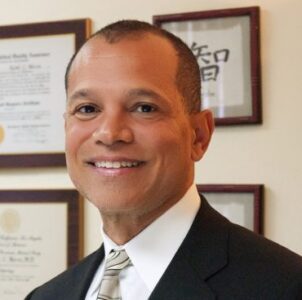
“Transcendental Meditation is a simple, evidence-based technique that may help reduce stress and protect cardiovascular health, especially in underserved groups,” said lead author Dr. Keith Norris, Professor of Medicine at UCLA. Dr. Norris is an internationally recognized clinician scientist and health policy leader. The recipient of numerous honors and awards from students, peers, community, and professional organizations, he serves as the Editor-in-Chief Emeritus of the international journal Ethnicity and Disease.
“This research reflects MIU’s mission to integrate consciousness-based approaches with cutting-edge science,” said Dr. Schneider. “We are helping to pioneer a new model of whole-person health that addresses the mind, body, and environment together.”
MIU faculty Dr. John Salerno, Dr. Carolyn Gaylord-King , and Dr. Sanford Nidich were also key investigators.

Another co-author is Amparo Castillo, MD, PhD, Clinical Assistant Professor of Community Health Sciences at the University of Illinois/Chicago. She holds an MS in Physiology from MIU and served as assistant professor and researcher at MIU’s Maharishi College of Vedic Medicine and Center for Natural Medicine and Prevention.
A 25-year collaboration
“This research collaboration began over 25 years ago, bringing together leading experts from several fields of mind-body medicine and integrative health — including meditation, stress and heart disease, and minority health and health disparities,” Dr. Schneider said.
Physicians, psychologists, and scientists from Charles R. Drew University, Cedars-Sinai Medical Center, UCLA, Maharishi International University, and the Institute for Prevention Research joined forces in the late 1990s to launch the first federally funded studies on meditation and cardiovascular disease.
“Their landmark research demonstrated that TM can lower blood pressure, prevent atherosclerosis, improve heart function, and even reduce the risk of death, heart attacks, and strokes,” Dr. Schneider said. “This latest study reflects decades of groundbreaking interdisciplinary, multi-institution teamwork and MIU’s continuing leadership in consciousness-based approaches to health.”
The study authors wish to acknowledge MIU researcher Dr. Maxwell Rainforth for his support with biostatistics, Linda Heaton for her administrative role over the years, and Dr. Skip Alexander for his pioneering contributions to this research program.
Read the full published study in Frontiers in Medicine.
Starting with a soccer team last fall, a tennis team this spring, and more teams this fall, MIU is expanding into intercollegiate sports — a move that has already begun to boost student enrollment, increase donations, and energize school spirit.

At the same time MIU is pioneering a new paradigm in sports training — Consciousness-Based sports.
MIU has had sports teams for short stretches in earlier eras, including basketball, soccer, and tennis. But this year it’s big time.
The dream began fifteen years ago with three MIU undergraduate students, all athletes — Rubén Sanchez, Luke Jaicks, and Owen Blake. Passionate about both sports and Consciousness-Based education, they recognized the potential of athletics for expanding the university along with the potential of MIU’s educational approach for transforming athletics.
Last year they reunited to make that dream a reality, adding fellow alum Percilla Herrera to the team.
MIU is preparing to join the National Association of Intercollegiate Athletics (NAIA), with its 237 member institutions across the country and more than 83,000 participating student athletes.
MIU hopes to join the Heartland of America Athletic Conference (HAAC) — “the Heart,” as it’s called — with its thirteen member colleges and universities in four states, Iowa, Missouri, Kansas, and Nebraska.
To join the NAIA, MIU must field at least three teams in both women’s and men’s sports. This fall they will add women’s tennis, women’s soccer, and women’s flag football, a rapidly growing sport debuting in the 2028 Summer Olympics in Los Angeles. They will also add an esports team, though it won’t count toward the NAIA’s required six.
MIU has already recruited student athletes. There are now 42 student athletes on campus, Including athletes who had already been enrolled when the sports programs started, with further recruiting actively under way.
“We’re so grateful for all the support we have received,” Rubén says. “From President Nader, from the Board of Trustees, from CEO Bill Smith and the university leadership, from donors. We’re committed to making this a big success, and this support means everything to us.”
“We’re particularly proud of how much our sports program is aligned with MIU’s mission and values.”
— Owen Blake
“We’re particularly proud of how much our sports program is aligned with MIU’s mission and values,” Owen says. “It’s been really amazing to see Maharishi’s knowledge in action. We see that every day with our athletes on the field and courts. It’s really fulfilling when a student comes up to us and says, ‘Oh man, that was the best game I’ve ever played,’ or ‘That was the most fun I’ve ever had,’ or ‘That’s the most fulfilled I’ve ever been on the court.’ To us that’s been really, really powerful.”
This experience of being “in the zone” spearheads their recruiting strategy. “We’re bringing students here who want to be part of this culture, of this vision, and really develop themselves internally and on the court,” Owen says. “That’s the first thing we pitch when we go out recruiting.”
Growth potential
Of all the graduating high school athletes who want to play at the college level, less than ten percent are able to land a spot on a roster — so there is clear demand.
“Many will be attracted to MIU and our approach,” Luke says. “We’ll also develop agreements with local community colleges where our teams compete, so that their graduating student athletes can enroll at MIU, earn their bachelor’s degrees, and continue playing their sport.”
NAIA data shows that each new team a school adds typically brings in 25–40 athletes, which can translate to a 5–10% enrollment bump for smaller schools. NAIA studies also show higher retention for athletes — 75–80% first-to-second-year retention vs. 65–70% for non-athletes.
But those numbers are by no means limits.
Luke Jaicks coached football at several other colleges before coming to MIU, including Brevard College in North Carolina, where he helped start a football team from scratch. “I started at Brevard in 2017,” he says. “We brought in non-scholarship students, our locker room was in the old movie theater, and we played at the local high school. The team went from zero to 52 students in the first year. When I left five years later, we had 242 students, with multiple junior varsity teams along with the varsity team.”
“We have tremendous opportunities for growth here at MIU.”
— Luke Jaicks
Nearby William Penn University offers a case study. Located in Oskaloosa, a town about the same size as Fairfield, the school decided to invest in athletics ten years ago. Today, of the 1,100 students on campus, 700 are student athletes, with close to 75 students on the men’s soccer team alone.
“We have have tremendous opportunities for growth here at MIU,” Luke says.
Consciousness-Based Sports – training the “zone muscle”
Beyond launching sports teams, MIU is introducing Consciousness-Based Sports, a paradigm-shifting approach to sports training.
“I’ve been in this field my whole life, and I’ve never seen anyone get to the level we have with Conscious-Based Sports,” Luke says. “There’s performance training, there’s sports psychology, but no one trains the ‘zone muscle.’ That’s the mythical unicorn in the sports world. Nobody knows how to get to it. But we have the tools and the technology to train that zone muscle.”
They plan a whole curriculum around Consciousness-Based Sports.
“Students will be able to graduate as Consciousness-Based Sports-certified performance coaches, filling a growing demand and spreading MIU’s core knowledge.”
— Owen Blake
“The curriculum we’re developing will prepare students for careers in sports psychology, coaching, sports management, leadership, and wellness, emphasizing holistic growth,” Owen says. “We’ll start next year with a specialization in Consciousness-Based Sports and build to degree programs, both on campus and online. Students will be able to graduate as Consciousness-Based Sports-certified performance coaches, filling a growing demand and spreading MIU’s core knowledge. Our master’s degree programs in CBS will attract coaches and other athletic professionals who want to expand their knowledge.”
Luke points out a parallel between MIU and the University of Nebraska.
In 1969, Nebraska’s athletic director hired a specialist in something called “strength training” to work with the football team. The move was initially met with skepticism. But Nebraska won the national championship the next two years and since then has won more games by far than any other team in the country. And strength training has become an essential component in athletic programs around the world.
“We’re doing the same thing with the zone, the flow state,” Luke says. “Everyone has heard about it, but no one understands what it is or how to train for it. With Consciousness-Based Sports, we can train people to have that experience, achieve better performance, develop themselves into to better human beings. That’s our goal — to help enlighten individuals through sports and help the world.”
Meet the leadership team
Rubén Sanchez
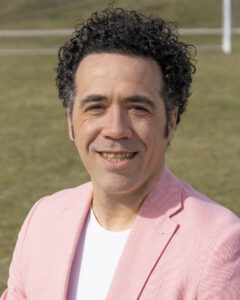
Rubén played professional soccer in Barcelona, Spain, for six years before coming to MIU in 2009.
“I was doing what I thought I loved most, but I was suffering,” he says. “Things were not connecting. I wanted to find answers. I wanted to find the truth about myself, about happiness, about performance, about what I could contribute and how I could actually fulfill my dream.”
Then he read about MIU.
“I said, this is it — I’m going to this place. I quit my two-year contract, I sold my car, my house, everything. I knew this place had something I wanted.”
He arrived at MIU “speaking no English,” he says. “I learned Transcendental Meditation, and I decided this what I wanted to do the rest of my life. I saw that this could transform athletics and the whole sports industry.”
He took a long break midway through his studies. He spent a year in New York City working for the David Lynch Foundation in a Quiet Time school project. Then he returned to Spain for two more years of professional soccer. “The other players had fun calling me ‘the philosopher’ when they saw me meditating in the bus,” Rubén says. His team won the championship the second season. And in 2013 he went to the Netherlands to take the TM Teacher Training course.
In 2015 he completed his BA in Maharishi Vedic Science, then returned in 2019 for an MA in Consciousness and Human Potential.
After graduating in 2015, he launched StressFreeSports, offering a Consciousness-Based sports methodology through which he has been helping athletes, coaches, sports directors, and leaders in different sports and at different levels, including Olympians and world champions worldwide.
“You’ll see at the end of the season.”
— Rubén Sanchez
He was hired by the Bali United professional soccer team in the Indonesian League, where he taught the TM technique to the coach and all the players. The owner of the team, a Chinese billionaire, asked Rubén how this could help them win the league championship — which they had never done. “You’ll see at the end of the season,” Rubén told him. And that’s exactly what they did, winning championships in 2019–2020 and again in 2021–2022. Rubén then began working with Persib United, another Indonesian professional soccer team. They won the league championship in 2023–24.
Branching out from soccer, Rubén was hired to work with the Spanish Olympic synchronized swimming team. They went on to win gold medals at the European Games, the Synchronized Swimming World Cup, the world championships, and a bronze medal at the Paris Summer Olympic Games in 2024.
Next came the Spanish rowing team, which Rubén helped to win two silver medals at the 2022 World Rowing Championships — a feat no Spanish rowing team had ever achieved.
Luke Jaicks
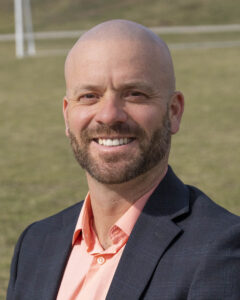
When Luke Jaicks arrived at MIU in 2010, he was coming for a second degree. He had earned a degree in psychology from Southern Utah University, where he played Division I football. In high school, he was an all-state defensive back his senior year, ranked number two in the state out of more than 12,000 players in that position.
“I played sports my whole life,” Luke says. “I used to have that zone experience, but I couldn’t explain it. It was so amazing, so silent and joyful. But I didn’t know what it was, and I was really looking for that. I started to get into yoga and meditation. I remember wishing there was a school that did meditation, and a friend told me, ‘There is.'”
He attended a Visitors Weekend at MIU. “When I returned home, I told my family that I was going to Fairfield, Iowa, to Maharishi International University to learn meditation. They had no background in any of this — they thought it was crazy. It was the best thing that ever happened to me.”
This is where he met Owen and Rubén. “We were the sports guys,” he says. “We connected.”
He graduated in 2013 with a degree in Maharishi Vedic Science.
From there he went on to a successful career as a football coach and recruiter at six colleges around the country, ranging from large to small — Arizona State, Scottsdale Community College, Southwest Oklahoma State (where he also earned a master’s in sports management), Brevard College (North Carolina), Clemson University, and Missouri Valley College.
“It’s funny, because all my players would see me meditating in the bus, and they’d ask what I was doing,” Luke says. “I told all my athletes that MIU and TM was the greatest thing that ever happened to me, and that if I had $100,000 I would have spent it all on learning TM.”
“I told all my athletes that MIU and TM was the greatest thing that ever happened to me, and that if I had $100,000 I would have spent it all on learning TM.”
— Luke Jaicks
In 2019, as the defensive coordinator at Brevard, Luke shattered the 76-year-old USA South Conference record for “total defense.” His defense allowed just 10.3 points per game (the NCAA average: 26.0), allowed zero touchdowns in five of ten games, and posted four straight shutouts. With this exceptional performance, Luke’s defense ranked #1 across all NCAA divisions out of 524 schools. His defenses continued their dominance over the next two seasons, with national rankings of #4 and #8.
“I truly believe MIU is the best school in the world,” Luke says. “It’s just amazing what this community and university have done for me and my life, which I can never repay. I’m just so grateful to be here. We want to bring more people here and teach them this.”
Owen Blake
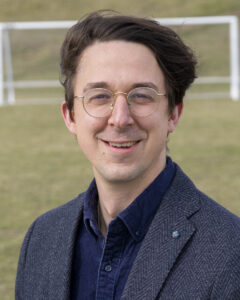
Owen was born and raised in Fairfield and went to Maharishi School. “I dropped out in the first grade — I always have to say that,” he says. After six years of homeschooling, he returned in eighth grade.
When he graduated, he enrolled at MIU, where he earned a BA in Media and Communications. After working in the MIU Admissions Office for a year, he attended the TM Teacher Training course.
While Rubén was introducing TM to athletes, Owen taught TM in San Diego for a year, then spent a year with the David Lynch Foundation teaching TM in a school’s Quiet Time program while also coaching their middle school basketball team. He returned to MIU for a master’s in Maharishi Vedic Science, then taught at Maharishi School for a year.
Then he enrolled in the PhD program in Maharishi Vedic Science. “I knew I wanted to research the effectiveness of Transcendental Meditation practice for esport athletes,” Owen says. “I’ve always been interested in sports and competition and the idea of improving yourself and being the best version of yourself that you can be. I’ve also always been interested in gaming and video games.”
He remembers speaking with Rubén when they were students together and Rubén talking about bringing TM to athletes. “At the same time, I was thinking it would be really cool to bring TM to the video game athlete community — to esports, where electronic sports video games are played professionally, a pretty wild concept. Esports are booming today, but then it was a brand new industry, the wild west of training.”
“I thought the esports industry was ripe for Maharishi’s knowledge and that we could revolutionize the industry with more holistic and healthy training styles.”
— Owen Blake
“In traditional sports, your body gives you obvious physical feedback about how much training you can do before your body needs to rest and recover,” Owen says. “But with more mental sports like esports, the mind can push further than the body, and mental fatigue is not so obvious to most people. So I thought the esports industry was ripe for Maharishi’s knowledge and that we could revolutionize the industry with more holistic and healthy training styles.”
As a PhD student, Owen cold-called his way to an invitation to work with an esports team, Misfits Gaming, located in Berlin, the center of European esports. “As soon as I was called about the position,” Owen says, “I knew I had to bring Rubén in.” They spent the next year as researchers, teaching TM to the team’s athletes and studying the outcomes.
“We looked at burnout and performance,” he says. “You wouldn’t think burnout would be a big thing in esports — players are just sitting around playing video games all day, right? But esports athletes retire at age 25, on average, due to burnout and physical strain.”
To measure the results, they used two instruments, the Perceived Stress Scale and the Athlete Burnout Questionnaire, which measured qualitative changes in the players’ lives.
“We found that players grew in emotional resiliency during the season,” Owen says. “They reported improved relationships, improved communication, the ability to remain steady in tough situations, greater emotional balance, and greater open-mindedness.”
Both inventories showed that the group that stayed with their TM practice had either reductions in burnout or no change during the season, while the group that did not continue increased in burnout. They replicated the study the following season.
Misfits Gaming hired both Owen and Rubén as performance coaches. Besides teaching Transcendental Meditation, they worked with the players on physical exercises, goal setting, teamwork, and personal relationships. Misfits Gaming rose from near the bottom of the league to the top quartile, and in the European playoffs, they came within one play of qualifying for the equivalent of the esports world cup.
From Berlin, Owen returned to MIU, where he completed his PhD and is now a full-time professor in the Maharishi Vedic Science department as well as Director of Consciousness-Based Sports Curriculum Development and Head of Esports.
Intercollegiate esports is exploding among US colleges and universities. The National Association of Collegiate Esports (NACE) has over 240 member schools and more than 5,000 student competitors. Esports scholarships and other financial incentives to attract top gaming talent are increasingly common. Many schools are investing in dedicated esports facilities, including gaming arenas and training centers, to support their teams and enhance the student experience.
“We want MIU to be a lighthouse for the esports industry as a whole.”
— Owen Blake
“We want to fully integrate our esports operations with the rest of our athletic program,” Owen says. “Our athletes will train at all four levels — physically, mentally, emotionally, and spiritually. We want to leverage our inner development to create as much outer success and performance as we can. We have a competitive edge, but we also have something really powerful for all esport athletes. We want MIU to be a lighthouse for the esports industry as a whole.”
Percilla Herrera
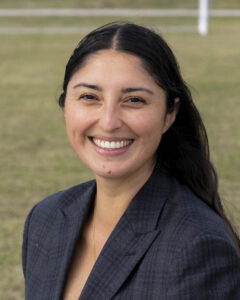
Percilla serves as Sports Information & Creative Director. “I’m responsible for our brand, image, marketing, materials, uniforms, swag,” she says. “I get to bring my passion for all things aesthetic, sports, and transcendence together. It’s really a dream job.”
She started playing soccer at the age of eight — “begrudgingly,” as she recalls, at her father’s insistence. It took a few practice sessions, but “I started to like it,” she says. “I went on to play club soccer, was the captain of my high school’s varsity soccer team as a freshman, played soccer in college, and coached girls junior varsity and boys varsity soccer.”
She attended MIU from 2013–2015, where she did an individualized major in Women, Consciousness, and Health.
A Transcendental Meditation teacher since 2017, Percilla has taught in New York City, Los Angeles, Arizona, and India, instructing more than 2,000 people. She has worked for the David Lynch Foundation, Maharishi Foundation USA, Maharishi Foundation International, and Maharishi School. At Maharishi School she was Director of Consciousness, where she was responsible for all TM-related activities — teaching, checking, leading daily group meditations, and TM Retreats. She also coached the boy’s soccer team.
“Last summer I ran into Rubén at a conference at Meru, in the Netherlands, and I mentioned that I had come with confusion about where my career would go after becoming a mom,” Percilla says. “I said that being at MERU calmed my anxiety about it and allowed me to surrender to nature. A couple weeks later Rubén asked me to work on this initiative.”
“Aside from birthing a baby, there isn’t anywhere else I’ve experienced the combination of silence and dynamism as on a playing field.”
— Percilla Herrera
“I love the strength and honor culture of sports, the grit that pumps through an athlete’s heart, and I’m excited to infuse our department with the essence of Consciousness-Based Sports,” she says. “The quality of dynamism and silence, chaos and order — aside from birthing a baby, there isn’t anywhere else I’ve experienced the combination of silence and dynamism as on a playing field.”
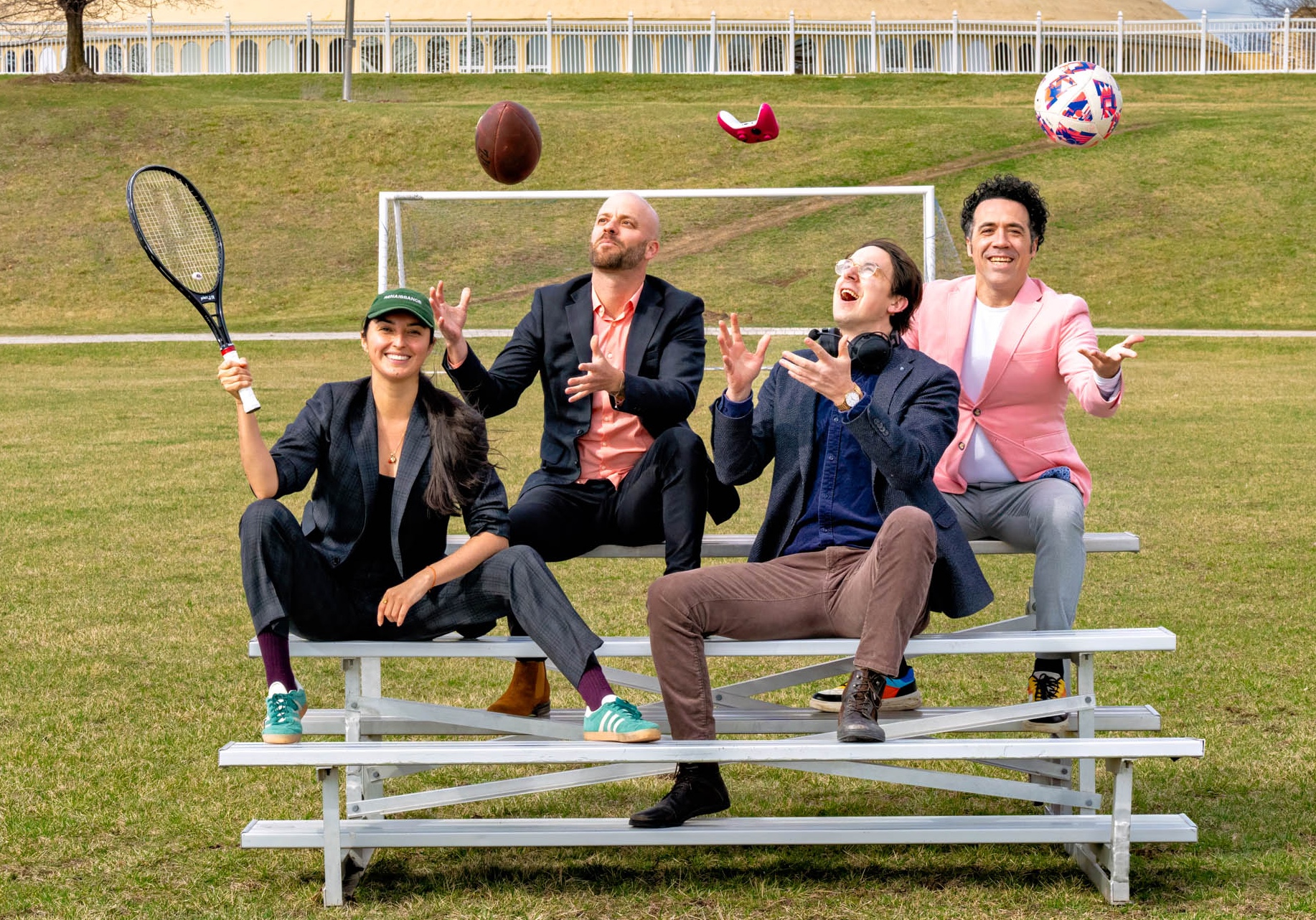
An NAIA team visits MIU
On February 10-11, 2025, representatives from the National Association of Intercollegiate Athletics visited MIU as part of the NAIA Pathways Program, designed to prepare athletic departments for NAIA membership.
The representatives included Nick Davidson, Vice President of Membership, Recruitment, and Retention, and Todd Stutzman, Manager of Membership Sales Operations. They were joined by Nik Rule, commissioner of the Heart of America Conference and Athletics Director at William Penn University.
They reviewed MIU’s athletics department and advised on what MIU needs to do to join the NAIA. The Pathways Program offers ongoing support until MIU is ready to apply for membership, typically in two to three years. MIU joined the NAIA Pathways Program last December.
The team met with President Nader, members of the Board of Trustees, the Athletics Department staff, the Enrollment, Financial Aid, and fundraising teams, and President’s Leadership Team.
“MIU’s philosophy aligns with broader trends in athlete mental health, performance psychology, and holistic development, making the Consciousness-Based Athletics model an asset rather than an outlier. If effectively communicated, this could serve as a distinctive recruiting advantage, positioning Maharishi International University as a leader in mental wellness-focused collegiate athletics, which is an area of growing emphasis across all levels of sports.”
– from the team report
“MIU has strong potential to establish a successful athletics program. The institution’s Consciousness-Based Education model positions it uniquely to pioneer ‘stress-free sports,’ creating an innovative approach to collegiate athletics,” they wrote in their report.
They also visited the MIU Recreation Center and Fieldhouse and appreciated the potential of both buildings. “They were impressed with the high ceilings in the Fieldhouse,” Luke says. “They were like, nobody has these high ceilings.” When the team walked into the Rec Center, one of the team members, looking down to the far end of the 60,000-square-foot facility, said, “Does all this belong to you?”
“As the next sports we offer, the team suggested we consider volleyball, basketball, wrestling, track and field, and cross country,” Owen says. “We’ll have to make a decision based on the facilities we have.”
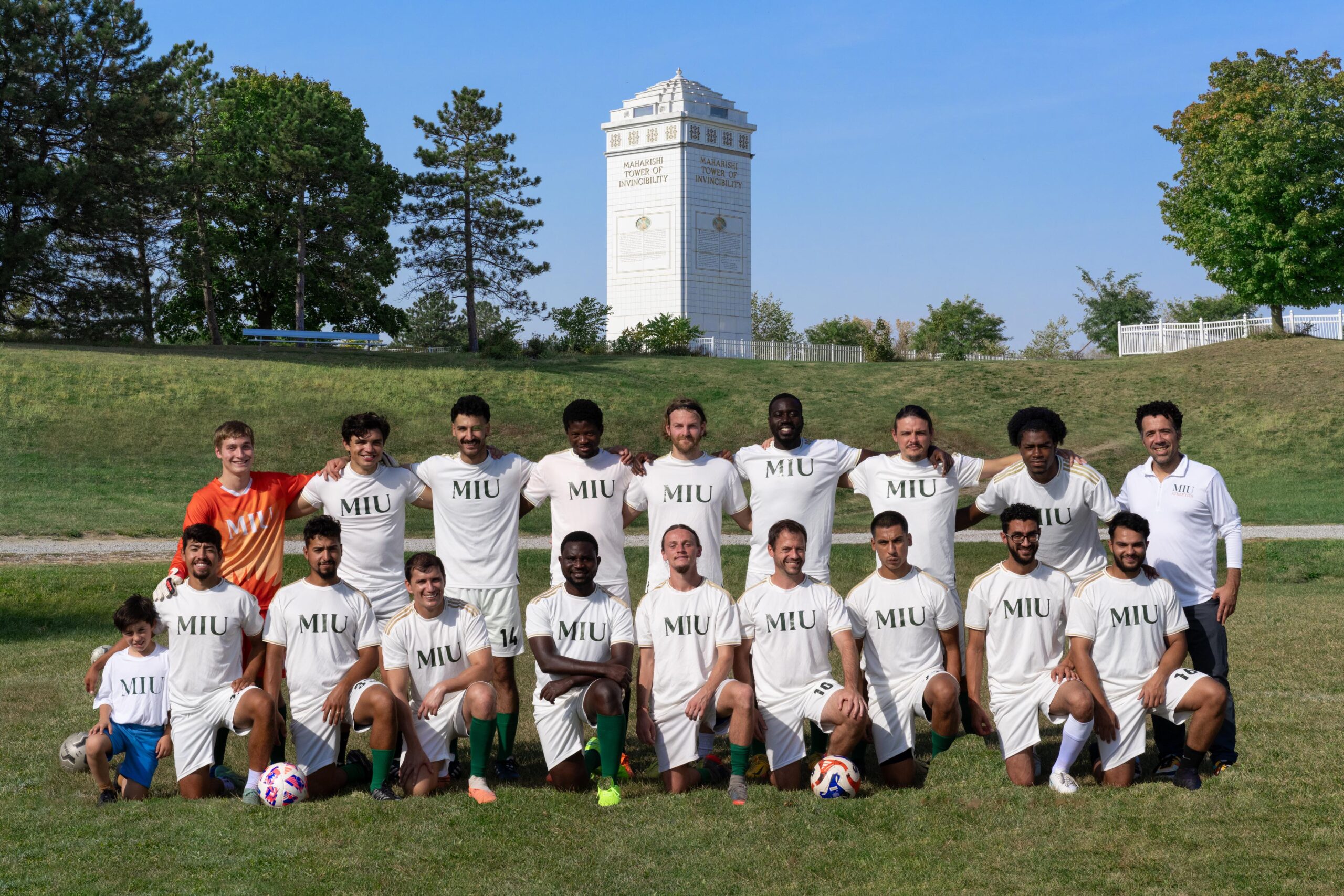
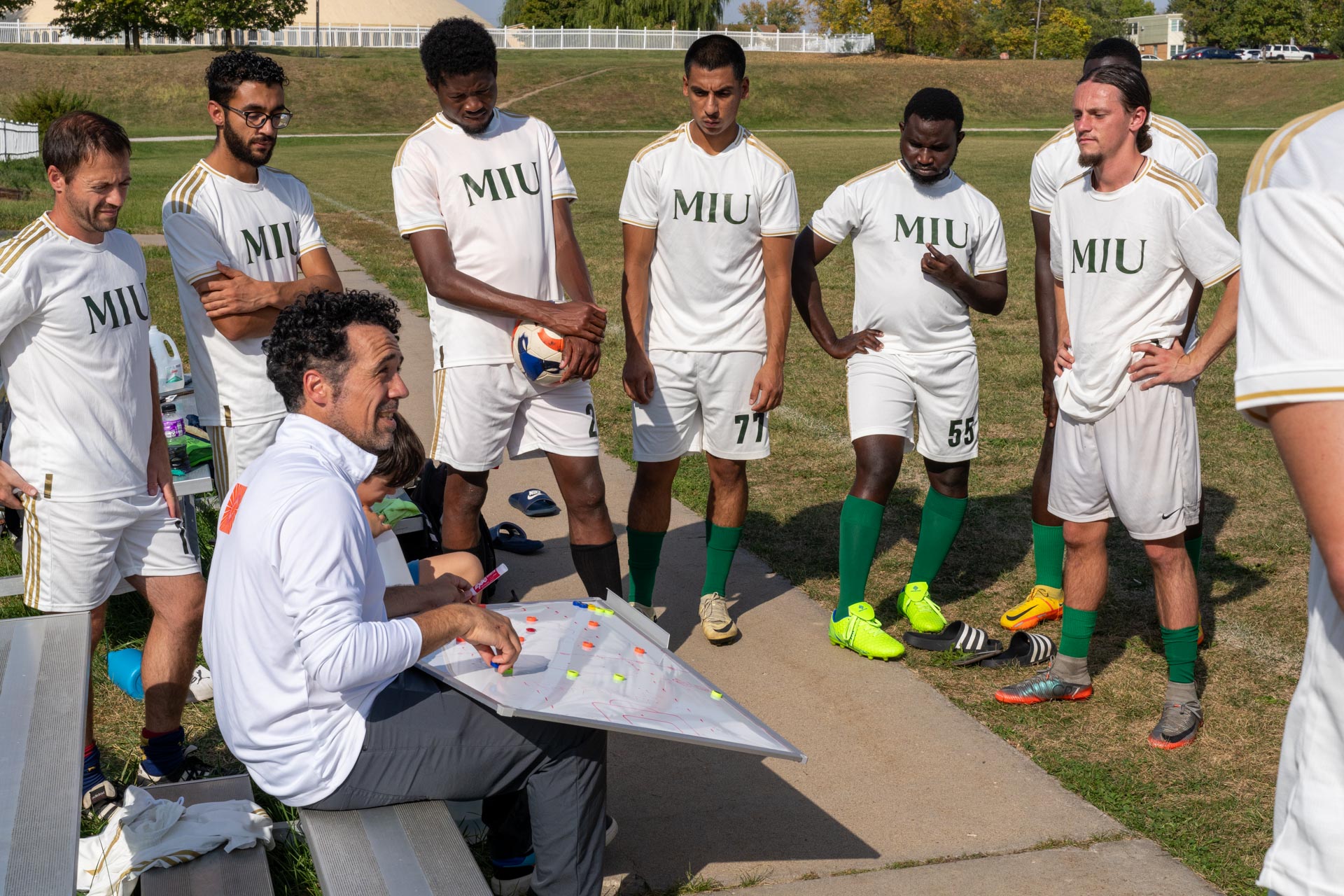
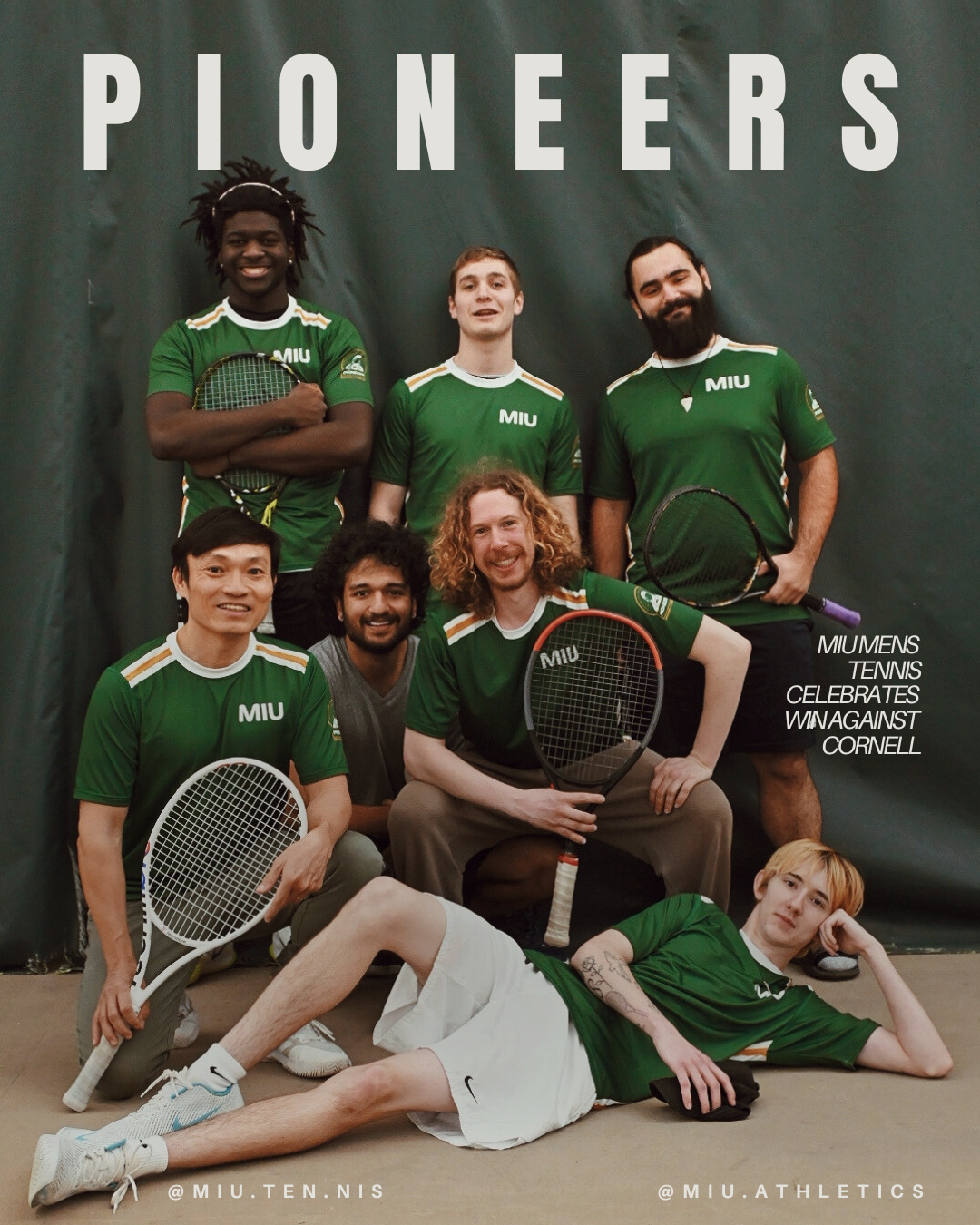

For more information, see MIU Athletics.
Photographs by Ken West. Esports tournament photo from the Memo Middle East Monitor.
Ansoya Rani and Samuel Okorie spoke at the recent 69th session of the United Nations Commission on the Status of Women, held March 10–21 at the UN headquarters in New York City.
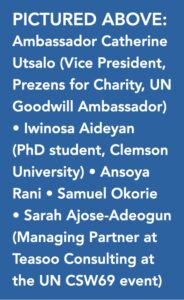
The UN Commission on the Status of Women (CSW) is the chief global intergovernmental body dedicated to promoting equal rights and opportunities for all women and girls, and this meeting is the UN’s largest annual gathering on gender equality and women’s empowerment.
“My speech was focused on empowering women with climate smart technology in addressing ecological issues,” Sam said. “I spotlighted the critical role of women in addressing ecological issues but most importantly the need to empower women and girls in vulnerable communities to become resilient in the face of climate crises through climate-smart intervention programs and support.”
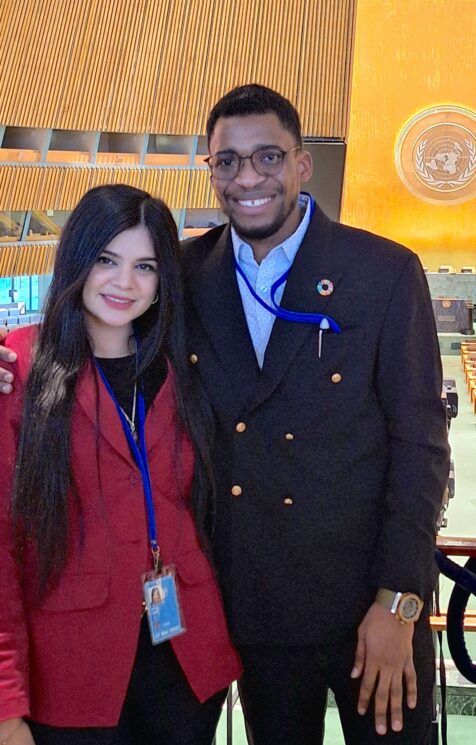
“We also talked about the application of technology of consciousness through the Transcendental Meditation technique, which offers an enriching experience that can greatly assist in achieving a more balanced and fulfilled life,” Sam said. “We discussed some benefits of Transcendental Meditation in countries like Bangladesh, India, and Uganda. We also shared our personal experiences and initiatives we are leading in our respective countries to empower women.”
“Standing at the United Nations headquarters in New York,” Ansoya said, “representing MIU as the president of the Student Government, was one of the most thrilling and meaningful moments of my journey. At first, I felt a little nervous speaking on such a global stage. Surrounded by leaders and changemakers was both exciting and overwhelming. But before starting my talk, I took five minutes to meditate. That moment of silence, of grounding myself in pure awareness, changed everything. When I opened my eyes, I felt ready not just to speak, but to take over the world.”
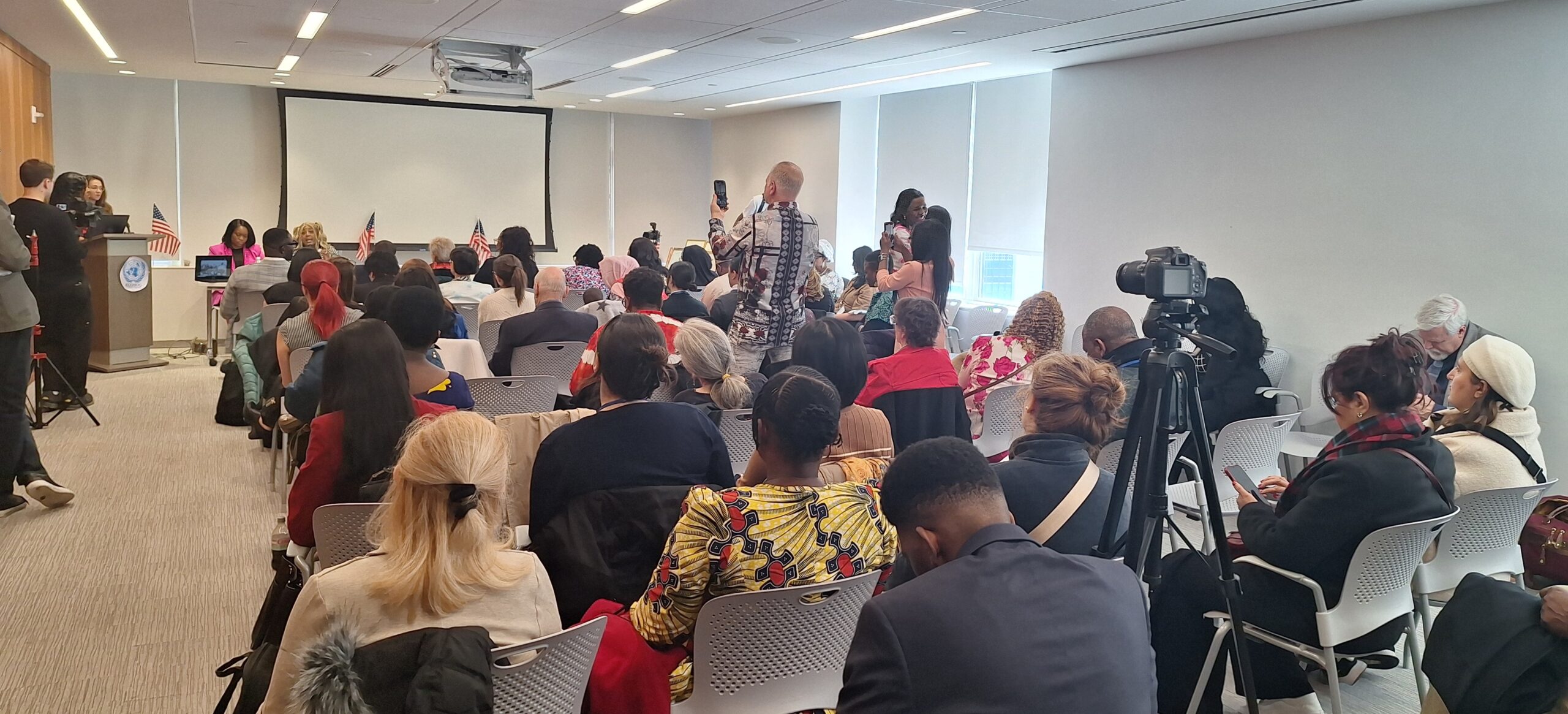
Ansoya, originally from Pakistan, is an undergraduate business major with a minor in Enlightened Leadership.
Sam, who came to MIU from Nigeria, has completed an MBA in ERP & Business Analytics and Sustainable Business (double honors) and plans to enroll in the new PhD in Regenerative Organic Agriculture. A veteran participant in global meetings on climate change and sustainability, he is a member of the advisory board of the UNFCCC’s Santiago Network (the UNFCCC is the United Nations Framework Convention on Climate Change, which crafted the Paris Climate Agreement). Sam was also part of the MIU group that gave presentations at the World Summit of Nobel Peace Laureates held in Monterrey, Mexico, last September, leading the three-person student team.
“Being at the UN headquarters was a fulfilling experience,” Sam said. “The event was both captivating and humbling, especially being able to share the podium with such influential individuals. It was a wonderful opportunity to connect with people from diverse tribes, cultures, and ethnicities.”
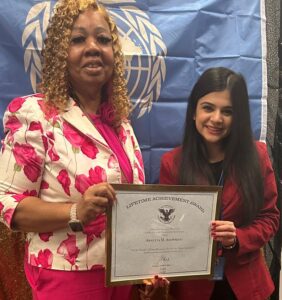
“As student body president I was also honored to present an award to Arnetta M. Asapokhai, a remarkable woman who is a member of the UN,” Ansoya said. “It was a humbling moment, recognizing her contributions and standing alongside incredible leaders dedicated to making a difference.”
“Standing in a room filled with passionate changemakers, I saw how deeply connected our struggles and solutions are,” Ansoya said. “The energy was electric, and every conversation reaffirmed my belief that giving women access to technology uplifts entire communities. I left feeling more inspired than ever and I hope that one day, Sam and I will bring the UN to MIU, creating a space for global conversations right here.
“I was informed about the event via email from UN Women as well as the Economic and Social Council (ECOSOC) youth constituency, and I saw it as leverage for MIU,” Sam said. “MIU sponsored our participation, and the event was attended by high-level dignitaries, politicians, founders, and members of the international community. The major outcomes of the event include support for providing women and girls from marginalized communities with gadgets to enhance their tech skills, offering tech education to empower local women, and supporting women-led initiatives that drive technology while making tech accessible for all.”
Reporting by Sam Okorie and Ansoya Rani.
In a remarkable come-from-behind win fueled by two thrilling tie-breaker victories in the singles matches, the MIU tennis team prevailed against a Cornell College squad in the spring season’s first match-up.
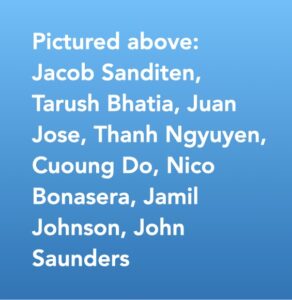
MIU fell behind early, losing all three doubles matches. (The doubles matches are one set each, with the team winning at least two of the three receiving one team point, while the singles matches count for one point each, for a total of seven possible points.)
MIU also lost the #1 singles match, with Cuong Do getting outplayed 6-3, 6-0 by a strong opponent.
Then the comeback started.
In the #2 singles match, Thanh Nguyen posted a commanding 6-1, 6-0 win.
The #3 match turned into an extended battle, with MIU student Juan Jose winning the first set, then tightening up and losing the second. But he regained his focus in the third set, closing out the match with a decisive 10-6 victory in the tiebreaker.
Jamil Johnson dominated most of his #4 match, securing a 6-1, 6-4 win despite a second-set rally from his opponent.
In the #5 match, Nicolo Bonasera struggled with his serve and the late afternoon lighting on his court. Although he found his rhythm later in the match, he ultimately fell 6-0, 6-3.
At this point the team score was 3 to 3.

In the sixth and deciding match, Jacob Sanditen found himself in a high-stakes showdown, fighting through long rallies. He won the first set 6-3, then lost the second 3-6. When the third set reached 6-6, it went into a tiebreaker. With the fiercely contested match on the line, Jacob delivered an electrifying 11-9 tiebreak win, securing the crucial fourth point MIU needed for victory.
“Jacob amazed both his teammates and perhaps even himself, overcoming a determined and highly skilled opponent with a brilliant display of focus and composure,” said coach Paul Stokstad.
With that match, MIU found itself in possession of its first team tennis victory since it last fielded a team 20 years ago.
The MIU players celebrated by echoing Cornell’s own chant — “Go Rams!” — in recognition of the hard-fought competition.

Since MIU brought eight players, Cornell graciously added two extra singles matches so that all MIU players could compete, with two Cornell players volunteering to play them, although those matches did not count toward the team total. This enabled MIU’s #7 player, Tarush Bhatia, and #8 player, John Saunders, to compete.
The Cornell players won both of these matches, giving Cornell a total of seven match wins to MIU’s four. But the match scoring system and two razor-thin tiebreak losses ultimately left Cornell short of the overall victory.
“This incredible performance marked a historic milestone for the program,” Stokstad said. “Although Cornell technically won more total matches, MIU’s ability to perform under pressure and capture the most pivotal moments proved decisive. The win came as a testament to the team’s resilience, determination, and ability to rise to the occasion in clutch situations.”
Reporting by Paul Stokstad
In a groundbreaking comparison of meditation techniques, researchers from MIU, Augusta University in Georgia, and the US Army Reserve have conducted the largest review and meta-analysis to date on meditation for PTSD treatment.
The study found that meditation, especially Transcendental Meditation, offers a complementary approach that can enhance standard medical care, providing a natural and effective way to promote full recovery from post-traumatic stress.
Analyzing 61 studies involving more than 3,400 participants, the researchers compared four categories of meditation: mindfulness-based stress reduction (MBSR), other mindfulness-based techniques (MBO), other meditations (OM), and Transcendental Meditation (TM). They found TM practice significantly more effective than the other procedures.
The study was published in December in Medicina 2024, an international peer-reviewed open access journal that covers all problems related to medicine.
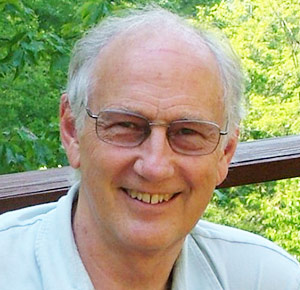
“Our findings show that all meditation techniques studied can help alleviate PTSD symptoms, but TM stands out as producing the largest and most consistent reductions across diverse trauma populations,” said lead author Dr. David Orme-Johnson, MIU professor emeritus. “Studies show that TM works in men and women, in youth and the elderly, in war veterans and war refugees, in women survivors of interpersonal violence, in prison inmates, in tsunami and earthquake survivors, and in nurses who became traumatized during the 2019 pandemic.”
“The results on the transformative power of TM are especially potent.”
— One of the study’s independent peer reviewers
One of the independent peer reviewers who looked at the study prior to publication described it as an excellent review for the research community because it explains how meditation procedures compare with one another and highlights key directions for further research. “The results on the transformative power of TM are especially potent and have come in line with increasing focus on non-pharmacological treatment for PTSD,” the reviewer said.
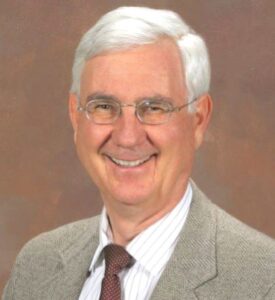
“I’ve been teaching TM in a hospital clinic for 12 years, working with soldiers experiencing PTSD and traumatic brain injuries,” said Dr. Vernon Barnes, the second author and emeritus assistant professor at the Georgia Prevention Institute at Augusta University (also an MIU PhD graduate ’96). “Our clinic is regarded as cutting edge for the treatment of complex concussion, which includes combat-related PTSD. TM is one of the few interventions with benefits that can be immediately translated into improved care in military medicine.”

• Gold bars = the results for all 61 studies | Orange = US military veterans | Green = civilian populations.
Effect sizes for the first three categories of meditation ranged from -.52 to -.66, a moderate effect, compared to -1.13 for TM, a large effect. Results indicate that TM is significantly more effective compared to each of the other procedures.
A new standard in rigor and comprehensiveness
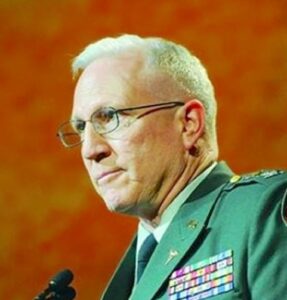
With its robust criteria for selecting the studies it examined, along with its advanced statistical methods, this meta-analysis sets a new standard in rigor and comprehensiveness. It included longitudinal research designs such as randomized controlled trials, controlled trials, and single-group case series, ensuring a comprehensive dataset. The researchers analyzed within-group effects, which show how much PTSD changes over time due to treatment, and then directly compared different meditation techniques on this measure.
“We employed meta-regression to identify predictors of effectiveness, such as type of trauma, age, and research design,” Orme-Johnson said. “These methods allowed us to control for all variables that influence the size of the effect, making our conclusions about differences in meditation techniques highly reliable.”

The review covered a wide range of trauma populations and was well accepted by subjects. Of the individuals offered TM, 86% were willing to try it, and 92% of them completed the instruction and continued the twice-daily practice, testifying to its accessibility and acceptability. “This meta-analysis surpasses previous reviews in scope and depth, making it an important resource for policymakers and healthcare providers looking to implement evidence-based PTSD interventions,” Dr. Barnes said.
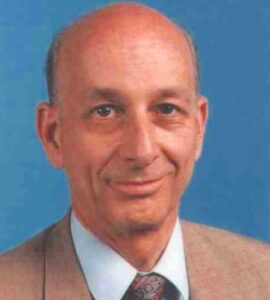
The authors recommend large-scale clinical trials to further validate TM’s effectiveness and to explore how it can be integrated into diverse healthcare settings. With the growing recognition of meditation as a valuable tool for mental health, this study positions TM as a vital component in the future of PTSD treatment.
This study builds upon prior research from MIU and elsewhere indicating potential health benefits of Transcendental Meditation that include lowering high blood pressure, reducing cardiovascular risk, and improving mental health.
Study title and authors
The full study, Effectiveness of Meditation Techniques in Treating Post-Traumatic Stress Disorder: A Systematic Review and Meta-Analysis, is published in Medicina and available online here.
The authors are David W. Orme-Johnson, PhD, Maharishi International University • Vernon A. Barnes, PhD, Georgia Prevention Institute, Augusta University • Brian Rees, Colonel (ret.), Medical Corps, U.S. Army Reserve • Jean Tobin, Research Liaison, Transcendental Meditation for Women • Kenneth G. Walton, PhD, Institute for Prevention Research, Maharishi International University.
Additional reporting by Ken Chawkin
On December 6, 2024, MIU celebrated 90 faculty and staff members who have served the university for 30 years or longer. Many have worked for more than 40 years, and topping the list was Dr. Robert Keith Wallace, MIU’s founding president and current Chair of the Department of Physiology and Health, who has served for 52 years.
The day included three events: a banquet, an awards ceremony following the banquet, and a special concert that evening in the Golden Dome by the twice-Grammy-Award-nominated vocalist Chandrika Tandon.
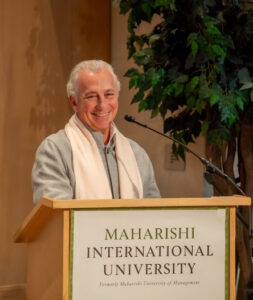
MIU President Dr. Tony Nader gave the keynote address at the awards ceremony. Each honoree received a Lifetime Achievement Award, a medallion, a copy of Dr. Nader’s new book, and a substantial cash honorarium.
“I see this as recognition for the highest level of what humanity can be,” President Nader said. “You will always be remembered as a symbol of the highest values that humanity can give. You truly deserve this award. Thank you for being here.”
The Lifetime Achievement Awards banquet was held in the main dining room in the Argiro Student Center.
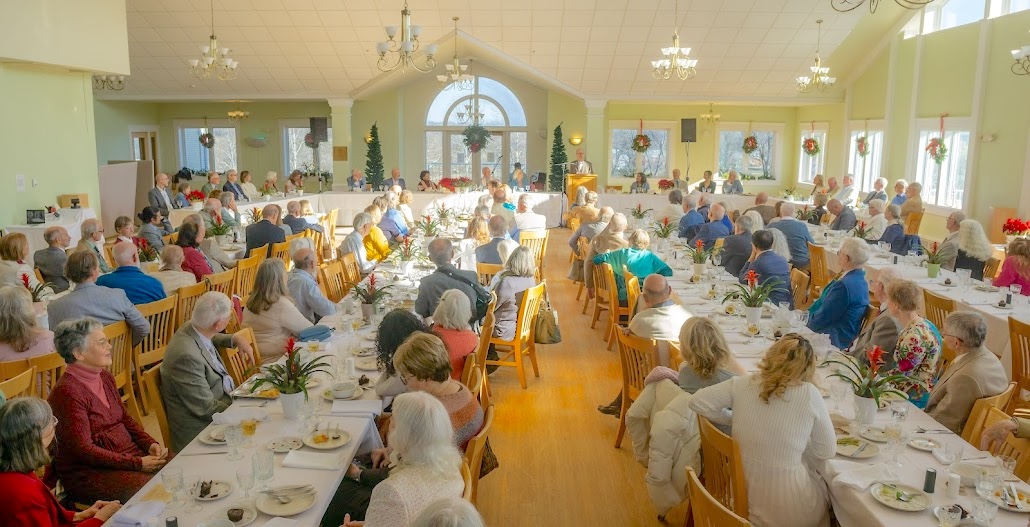
“It took a special group to comprehend inestimable significance of the life-changing knowledge we received from Maharishi at the founding of the university,” said President Emeritus Dr. John Hagelin at the banquet. “It takes a special heart, a special mind. You gave and have given for decades. What you have done is so important for the history of education, for the history of the world. Everything you do is precious. You have created the community we know as MIU. You’ve built it. You deserve all credit for it.”
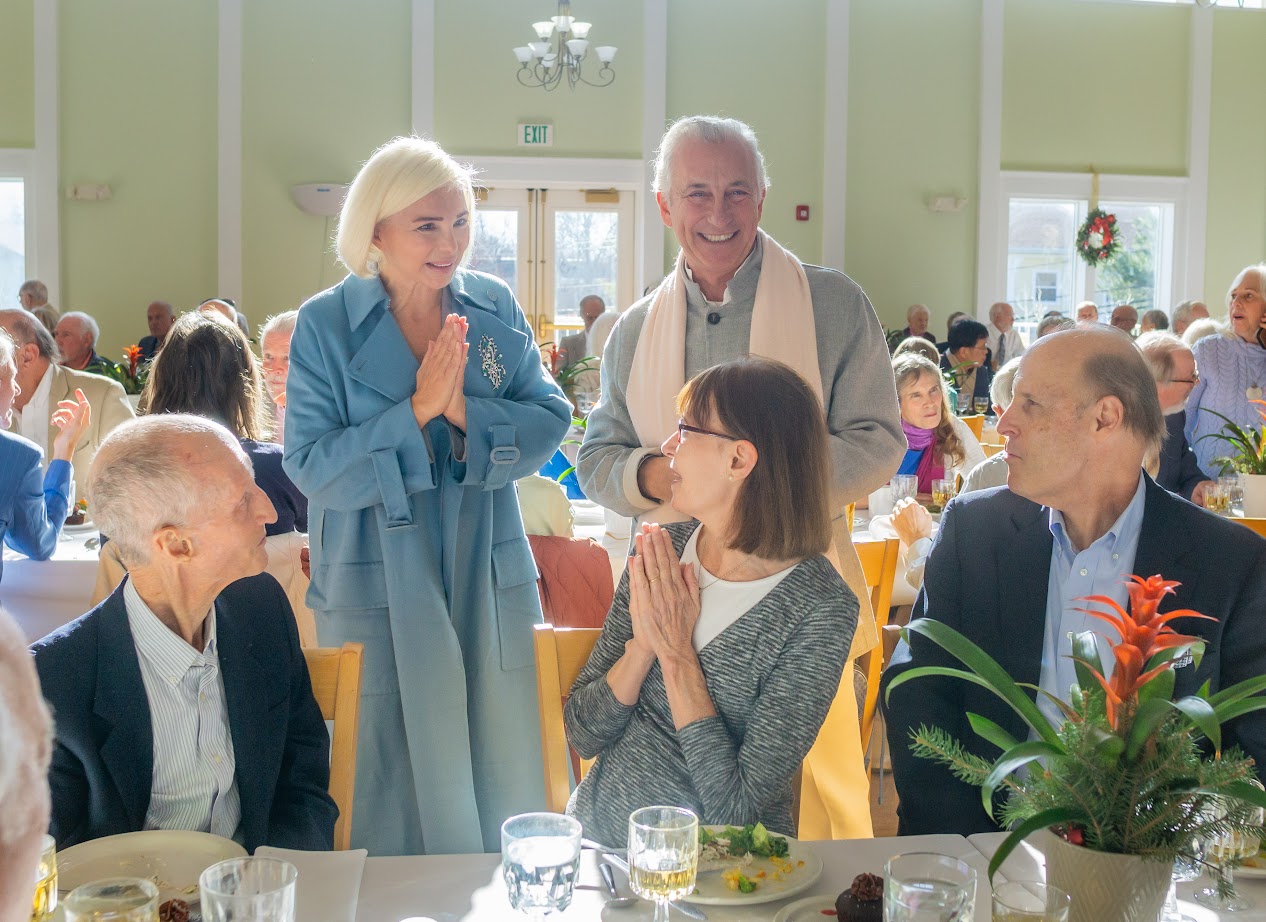
The event was inspired last spring by the Board of Trustees Personnel Committee, co-chaired by Dr. Laura Wege and Josie Fauerso, who spent months helping plan and fundraise for it.
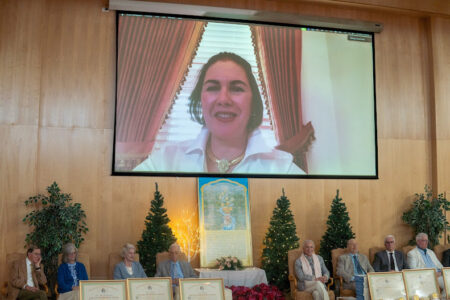
“What an absolute joy it was to help plan these special events for you, the heroes that have been working and teaching at the greatest university in the world,” Laura Wege said. “You are precious not only to MIU, you are precious to the whole world. We love all of you here, and we are so deeply grateful that you chose the path you did in life.”
The awards ceremony included short talks from four representative long-term faculty and staff members.
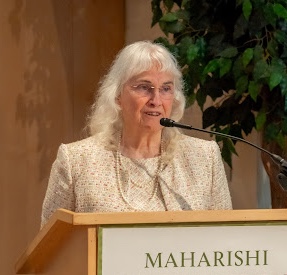
Anne Dow, chair of the Mathematics department, recalled her first visit to MIU, for the historic Taste of Utopia Assembly, which brought together 8,000 TM and TM-Sidhi program participants for three weeks to create a global wave of harmony and which Maharishi attended. “I was invited suddenly, along with the other mathematicians, physiologists, and scientists at MIU, to attend a special meeting with Maharshi,” Anne said. “At that meeting, Maharshi explained that chemistry was the study of nature from the viewpoint of structure. And mathematics was the study of nature from the viewpoint of orderliness. And it was at that moment that I realized that I was going to quit my tenured faculty position at University of Queensland and get here within one year, whatever it took.”
Anne also recalled the academic projects Maharishi gave the faculty. “We had project after project where each department worked together to go deep, deep, deeper into their discipline and to the source of their discipline in the field of pure consciousness,” she said. “Our growth of consciousness and growth in our disciplines was phenomenal.”
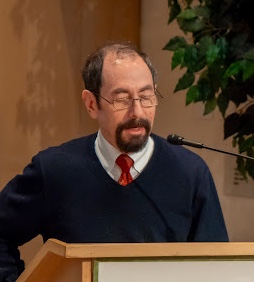
Matt Jaffey, a programmer systems analyst in the IT department, applied to work at MIU in 1980, only to learn that there were no open positions. “After several attempts, I gave up and found another job, in Chicago,” Matt said. “Then, a day before I was to start it, I got a call with a job offer from MIU. I think of this as nature’s organizing to give me an opportunity to choose between a salaried position at a prestigious organization affiliated with the University of Chicago and working in the kitchen in the pot room. . . . But I knew that this was the best place to go to continue my own spiritual evolution.”
Matt took time out to get a degree in computer science at MIU and was then hired by the Computer Services department, where he has worked ever since. “Throughout the years, I have been grateful that MIU provided me with an opportunity to work in a job that has been such a dharmic match for me. And it has been very satisfying to provide my services to so many staff and faculty, many of whom I count as long-time friends in our spiritual adventure in this haven created under Maharishi’s guidance to promote Consciousness-Based education.”
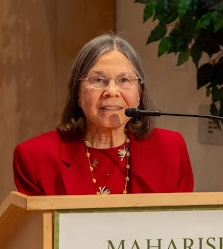
Ruthann Bollinger, who works in the Accounting Services department, remembers moving to MIU from Houston, Texas, with her late husband Robert. “Now, with no disrespect to downtown Houston, the contrast in moving to the MIU campus was quite dramatic. I felt that we had arrived in some heavenly place. We hardly knew anyone here at that time, but I felt that everyone who walked by me on the sidewalk looked like a saint. Everyone who spoke to me sounded like a saint. Everyone greeted us with so much friendliness and appreciation and support. And all of that only grew over time and transformed our experiences and our lives here, both inside and out. Our decision to work at MIU was the best possible decision we could have made thirty years ago. I can’t imagine having been anywhere else or having done anything else other than working for Maharshi in this holy place.”
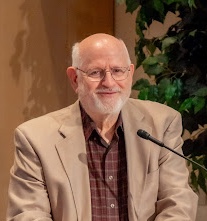
Ken West, a lecturer in photography in the Cinematic Arts and New Media department, also served as the director of MIU printing services and later as treasurer. He attended MIU during its first year, 1973–74, when it occupied a rented motel complex in Santa Barbara, California. In 1974 MIU relocated to Fairfield, Iowa, and Ken returned in August 1977 to work on staff. On his first night in Fairfield, as he looked across the campus, the light shining out from hundreds of residential hall windows reminded him of an ancient Indian text that advised surrounding oneself with people on the same spiritual path — people pursuing the highest goal in life, higher states of consciousness. “So that evening when I looked out on the sparkling lights, each light a place where a meditator was living, I knew that this was my home for the rest of my life — a place where I could serve Maharishi and his goal of bringing world peace to all mankind. Here we are 47 years later. A life worth living.”
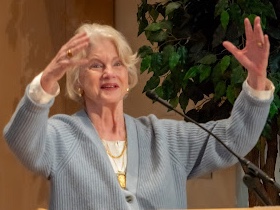
Josie Fauerso, who was among the first university trustees, also addressed the award recipients. “In the future,” she said, “your grandchildren and great-grandchildren will hear your stories of coming to the heartland of America, to a neglected campus, and turning it into a haven of enlightenment. An accredited university educating people from more than a hundred countries all over the world. And a beacon light of Maharishi’s Vedic knowledge right here in America. And this is a life worth living.”
Lifetime Achievement Award Recipients
Robert Keith Wallace • Susan Tracy • Craig Pearson • Melissa Pearson • Ken West • Cathy Gorini • Jim Shrosbree • Isabelle Levi • Michael Lerom • Brad Mylett • Tom Brooks • Harry Bright • Bill Goldstein • Craig Shaw • Vicki Alexander Herriott • Scott Herriott • Mike Shay • Tom Hirsch • Chris Jones • Ken Daley • Tom Egenes • Greg Guthrie • Elaine Guthrie • Sandy Nidich • Carolyn King • Robert Schneider • Anne Dow • Jim Karpen • Dennis Heaton • Dale Divoky • Rachel Goodman • Mike Davis • Sue Brown • Sandra Rosania • Nick Rosania • Martin Schmidt • Jane Schmidt-Wilk • James Bedinger • Linda Bedinger • Jonathan Worcester • Randy Bales • Bill Graff • Paul Morehead • Dolores Johnson • Sam James • Matthew Beaufort • Julie Beaufort • George Collum • Terry Fairchild • Fred Travis • Andy Cozzens • Marc Bouttenot • Gerry Geer • Richard Thompson • Keith Levi • Clyde Ruby • Jane Aikens • Jim Fairchild • David Fisher • Joanie Romes • Kris Wood • Sherri Shields • Rosemary Spivak • Michael Spivak • John Runkle • Susan Runkle • Lyle Nelson • Maxwell Rainforth • Rhoda Orme-Johnson • Bill Sands • Kit Healy • Dan Wasielewski • Ruthann Bollinger • Matt Jaffey • Sam Boothby • Ken Cavanaugh • Steve McLaskey • John Salerno • Shepley Hansen • Jerry Dee Lawley • David Goodman • Bruce McCollum • Bill Christensen • Arla Rabalais
You can view the photo album here and the individual award recipient photos here.
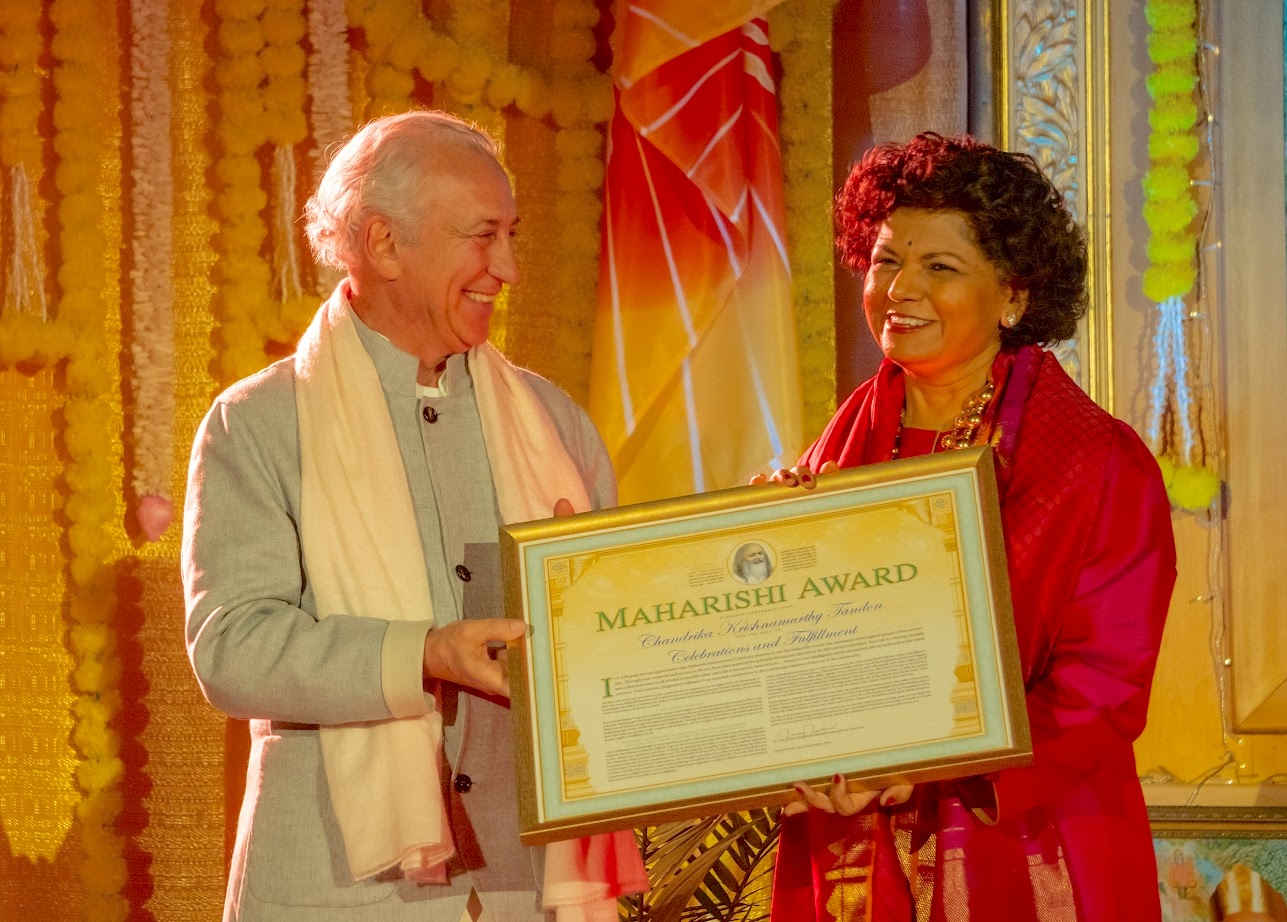
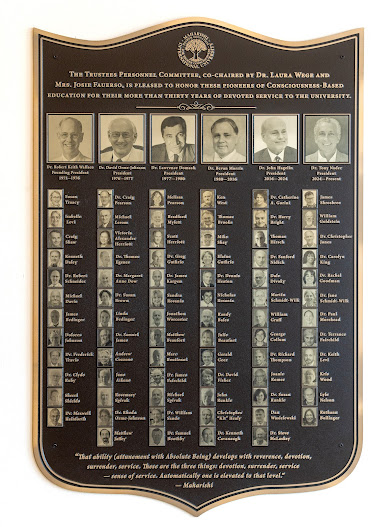
David Lynch was one of the outstanding creative geniuses of the past half century. He was one of the most effective advocates of Transcendental Meditation we’ve ever seen. And he was a great friend to MIU.
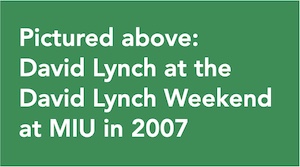
During his career, David was widely regarded as the world’s greatest living filmmaker. But he poured his creativity into many other forms — painting, drawing, photography, printmaking, sculpture, woodworking, and music composition. His life and visionary work showed that consciousness is truly a field of all possibilities.
He had an extraordinary gift for communicating the benefits of TM practice. His words were always fresh, vivid, and compelling. In his best-selling 2006 book Catching the Big Fish, he wrote:
If you have a golf-ball-sized consciousness, when you read a book, you’ll have a golf-ball-sized understanding; when you look out a window, a golf-ball-sized awareness; when you wake up in the morning, a golf-ball-sized wakefulness; and as you go about your day, a golf-ball-sized inner happiness.
But if you can expand that consciousness, make it grow, then when you read that book, you’ll have more understanding; when you look out, more awareness; when you wake up, more wakefulness; and as you go about your day, more inner happiness.
You can catch ideas at a deeper level. And creativity really flows. It makes life more like a fantastic game.
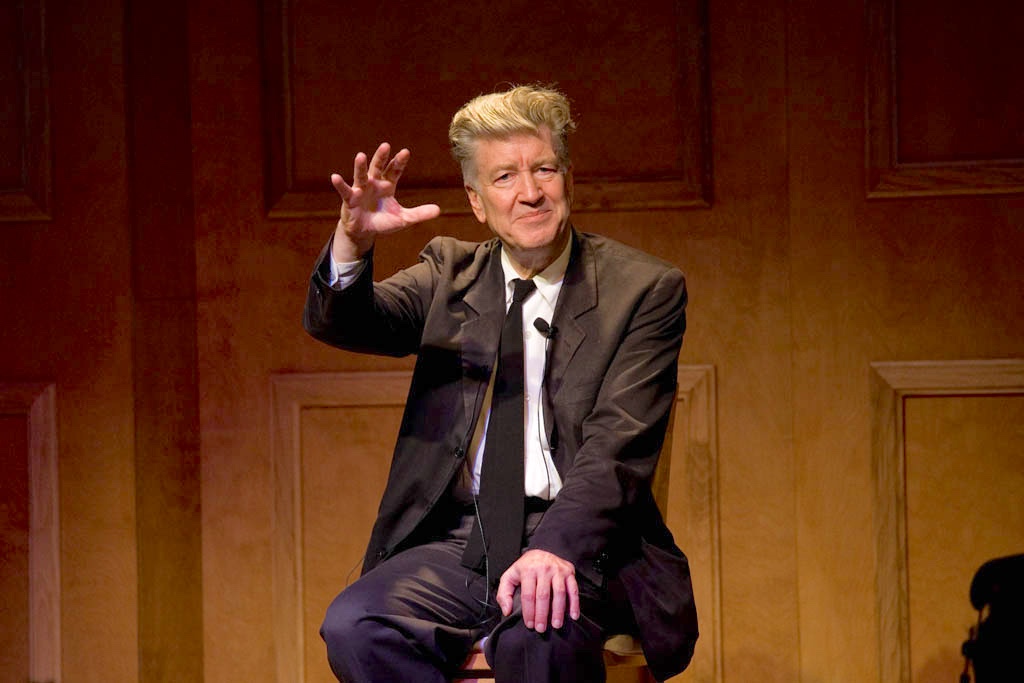
He spoke on college campuses across America, Europe, and the Middle East on the theme of “Meditation, Creativity, and Peace.” In 2012 he released a film with that title, documenting his European and Middle Eastern tours from 2007 to 2009, when he visited sixteen countries to speak with students, accept national awards, and encourage TM practice as a technique for boosting creativity and securing peace.
Countless people have said that it was David Lynch who inspired them to learn to meditate.
David prided himself on never missing a meditation. In Catching the Big Fish, he talks about his TM instruction in 1973, describing his first meditation experience this way:
I sat down, closed my eyes, started this mantra, and it was as if I were in an elevator and the cable had been cut. Boom! I fell into bliss — pure bliss. And I was just in there. . . . It seemed so familiar, but also so new and powerful. After that, I said the word “unique” should be reserved for this experience.
It takes you to an ocean of pure consciousness, pure knowingness. But it’s familiar; it’s you. And right away a sense of happiness emerges — not a goofball happiness, but a thick beauty.
After David had been meditating for a couple of years — but long before he became famous — he went with a friend to hear Maharishi speak at a large venue in Los Angeles. As he stood in a long line of people waiting to get in, Maharishi arrived, emerged from his car, and walked past them. David recalls all sound seeming to fall away during those moments. A short while later, a man came out of the building and motioned for David and his friend to follow him. He took them into the building and guided them down a series of long hallways, then opened a door and — to David’s amazement — led them out onto the main floor of the theatre right in front of the stage, gesturing for them to sit in two somehow empty front-row seats in an otherwise packed auditorium. A few moments later a woman approached them and asked, “Who are you?” “I’m nobody,” David replied. “Well, you must be somebody,” the woman responded, “because you’re sitting in the VIP section.”
David Lynch Weekends at MIU
Between 2006 and 2009, David came to MIU each spring for an annual series of David Lynch Weekends, intended to attract prospective students interested in creativity and the arts.
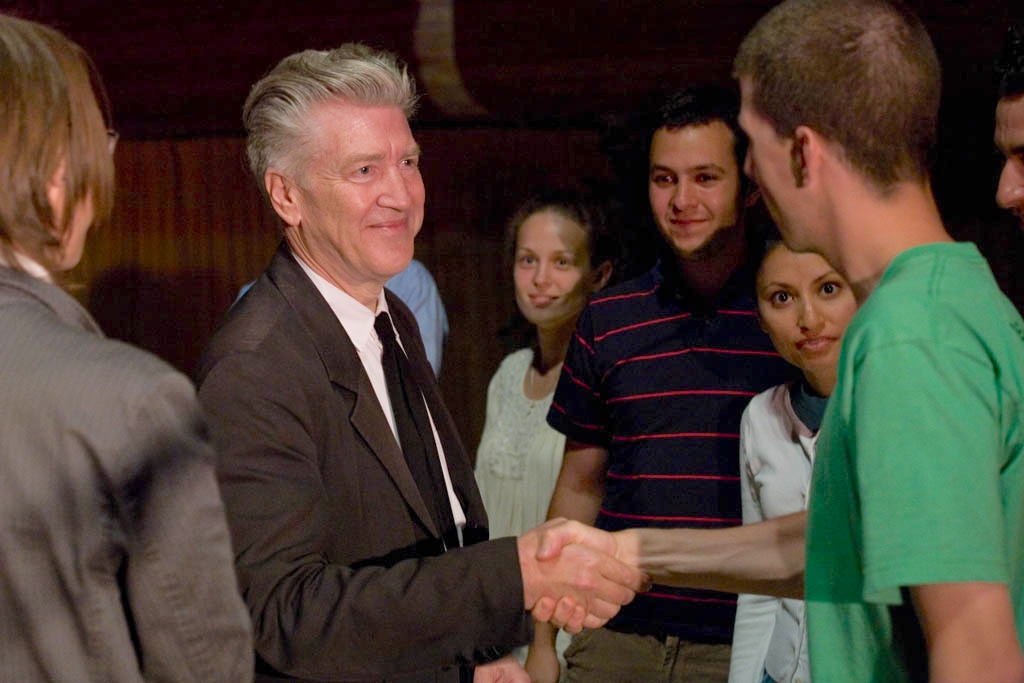
In 2009, the event attracted 200 guests from 27 states and countries as far as Italy. Besides question-and-answer sessions with David Lynch, the weekend included musical entertainment by MIU students, an introduction to the TM program by Bob Roth, a taste of the activities of the David Lynch Foundation around the world as documented by DLF.TV, and a presentation by Dr. John Hagelin on “The Cosmos Within: Exploring the Limits of Human Potential.” The capstone event was a concert featuring music legend Donovan, blues singer/songwriter Laura Dawn, and James McCartney, son of the famed Sir Paul McCartney, making his US debut.
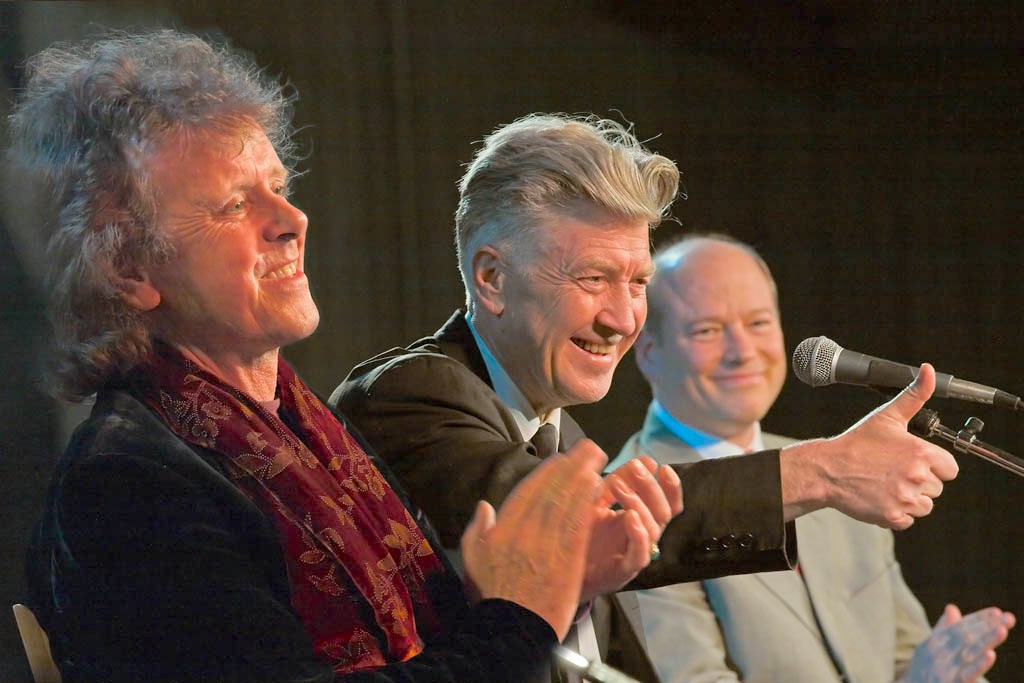
David Lynch academic programs at MIU
David generously lent his name to the David Lynch MA in Film program in 2013, when it launched. Over the next three years, he invited each class of film students to his home in Los Angeles for a wide-open discussion in his personal studio. Students spent several more days visiting other filmmakers and significant people in the industry.
Amine Kouider, chair of the Department of Cinematic Arts and New Media and an award-winning filmmaker, was in one of those classes. “David greeted us in his studio with coffee and donuts and then happily answered every question we had. We all felt it was a privilege and gift to be with him.”
In 2016, the MA in Film transitioned into the David Lynch MFA in Screenwriting within the David Lynch Graduate School of Cinematic Arts. David met remotely each semester with each new cohort of students for an hour of live Q&A, a tradition that continued until last semester.
“David’s commitment to our programs was unwavering.”
— Amine Kouider
“David Lynch was a beacon of consciousness and creativity,” Amine said. “David’s commitment to our programs was unwavering. He delighted in meeting with our students and sharing his wisdom and experience. His motto for us was ‘meditate and create.'”
Reflections from Stuart Tanner, program founder
Stuart Tanner, assistant professor of Cinematic Arts & New Media at MIU and an acclaimed documentary film producer and director, created MIU’s original David Lynch MA in Film program along with professor Gurdy Leete and Joanna Plafsky, and he worked with David Lynch at its inception.
“We had scholarship funding for the best applicants during the first years of the program,” Stuart recalls. “Students submitted their films as part of the scholarship application. David wanted to be personally involved in reviewing those films and awarding the scholarships.
“We went through all of them together, all sorts of different kinds of films — music videos, animations, dramas, experimental films. We talked about each them, discussing their merits, back and forth. It was not like I was talking with the foremost avant-garde surrealist cult filmmaker in the world. We were just two buddies talking about these films. It was a unique and fantastic experience and a lot of fun.”
“My conversations with him were always like that,” Stuart said. “He was always easy with you. It was always one hundred percent authenticity with David. He was a committed, kind, insightful, brilliant filmmaker. The humanity was always there. You could talk with him about anything — film, art, anything — and what you always got back was thoughtful, penetrating, and laced with humor and universality. I don’t think there’s anyone David couldn’t reach. He was unique.”
“When we’d visit him in Los Angeles at his home studio, those couple of hours were a powerful experience for everybody,” Stuart said. “The way he handled the students was incredible to watch.”
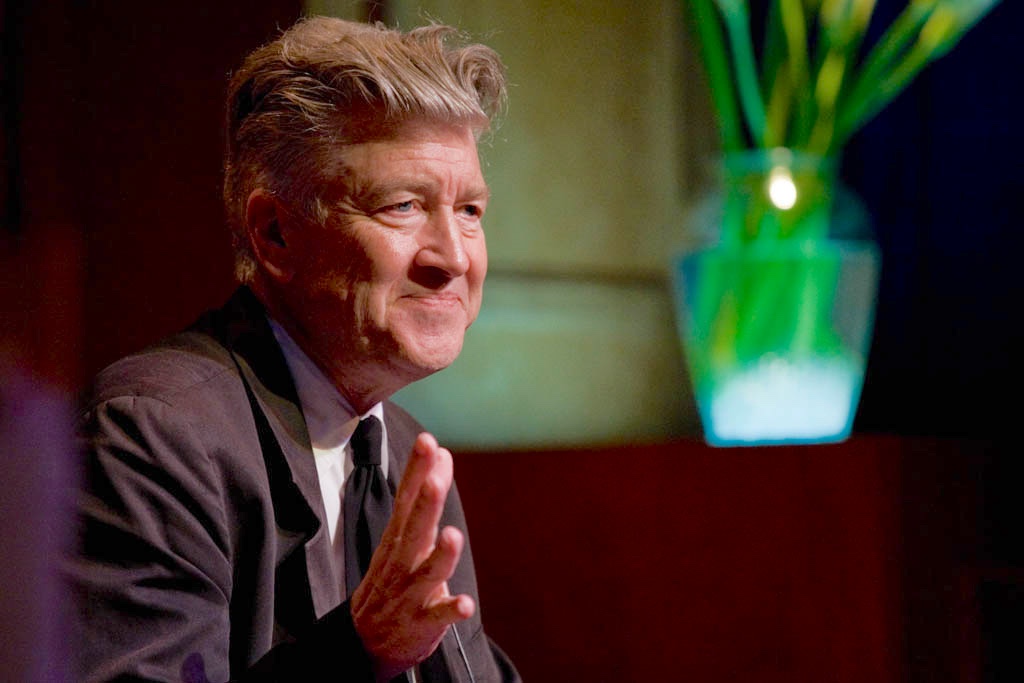
Reflections from Daniel Nearing, program director
“For more than half a century, David Lynch has been ‘Catching the Big Fish’ of ideas from the depths of his consciousness,” said Daniel Nearing, the current Director of the David Lynch MFA in Screenwriting program. “He is a giant of American and international cinema, yet no matter the medium — film, painting, drawing, music — he has shown us what it means to live The Art Life with unflinching integrity and heart.”
“He has also been in recent years the most vocal, influential proponent in the world for the Transcendental Meditation technique,” Nearing added. “He insisted that TM be a part of our curriculum from the start, and as a consequence has forged a generation of screenwriting voices in alignment with the source of his own magnificent visions.”
In a recent email to the MFA students, he referred to the class’s latest conversation with David: “As we spoke with him that last time, Alexandra (class of 2025) shared that her father had recently died and asked David if he had thoughts on an afterlife. David held court, as only David could do, with wisdom, intellectual agility, and grace. Let’s hear this again from him and take it to heart. He’s there now.” And then he shared this video clip from that Zoom call.

* * * * * * *
Quotations from David Lynch: David Lynch, Catching the Big Fish: Meditation, Consciousness, and Creativity (New York: Jeremy P. Tarcher/Penguin, 2006), 28 and 4.
Everyone is invited to join in celebrating the work of four artists in the 2025 Thesis Exhibition, the apex of MIU’S two-and-a-half-year Low-Residency MFA program in Visual Art, held in the Wege Center for the Arts.
There will be an artists’ reception on Thursday night, January 16, from 6:30 to 8:30 in the Wege Center.
Featuring painting, collage, installation, and sculpture, the exhibition presents a showcase of each artist’s thesis work.
Four MFA students are exhibiting their work: Niloofar Monfared, Eva Sainte Rose, Cortys Winston-Sandefur, and Sam Foster.
- Niloofar Monfared, a newbie visual artist from Iran, now based in Iowa. Her work currently is focused on drawing, collage, and painting. In addition to her MFA from MIU, she holds a BA in Consciousness and Sustainability from MIU.
- Eva Sainte Rose, a multidisciplinary artist in Los Angeles. Her focuses include painting, collage, video, and motion graphics. Her work has been featured in the following digital art collectives and online magazines: Mundane Magazine, Feltzine, Post Vision, Tax Collection, Friday Magazine, Jawbreaker Zine, Lithium Magazine, and Ok Whatever.
- Cotys Winston-Sandefur, born and raised in Oakland, California. She has exhibited her work nationally at venues like Oak Park Art Gallery in Chicago, the Consulate General of Mexico in Los Angeles, and the Manetti Shrem Museum of Art in Davis, California.
- Sam Foster, originally from Lawrence, Kansas, received his BFA from the Milwaukee Institute of Art and Design (MIAD) in 2012, where he studied painting and experimental film. He currently lives in Lockhart, Texas, just south of Austin, where he has been a long-time member of Spellerberg Projects, an artist-headed studio and gallery.
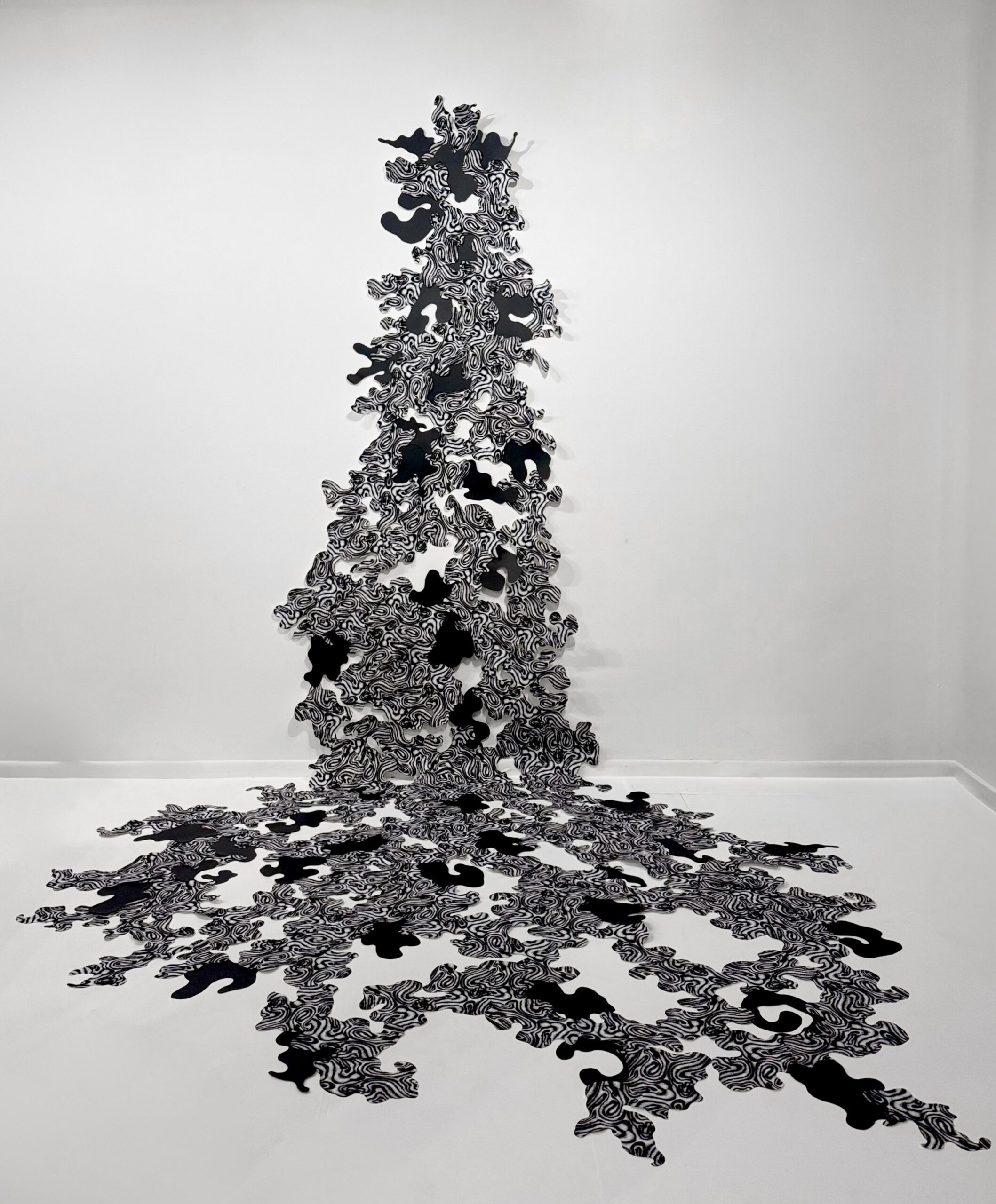

by Niloofar Monfared
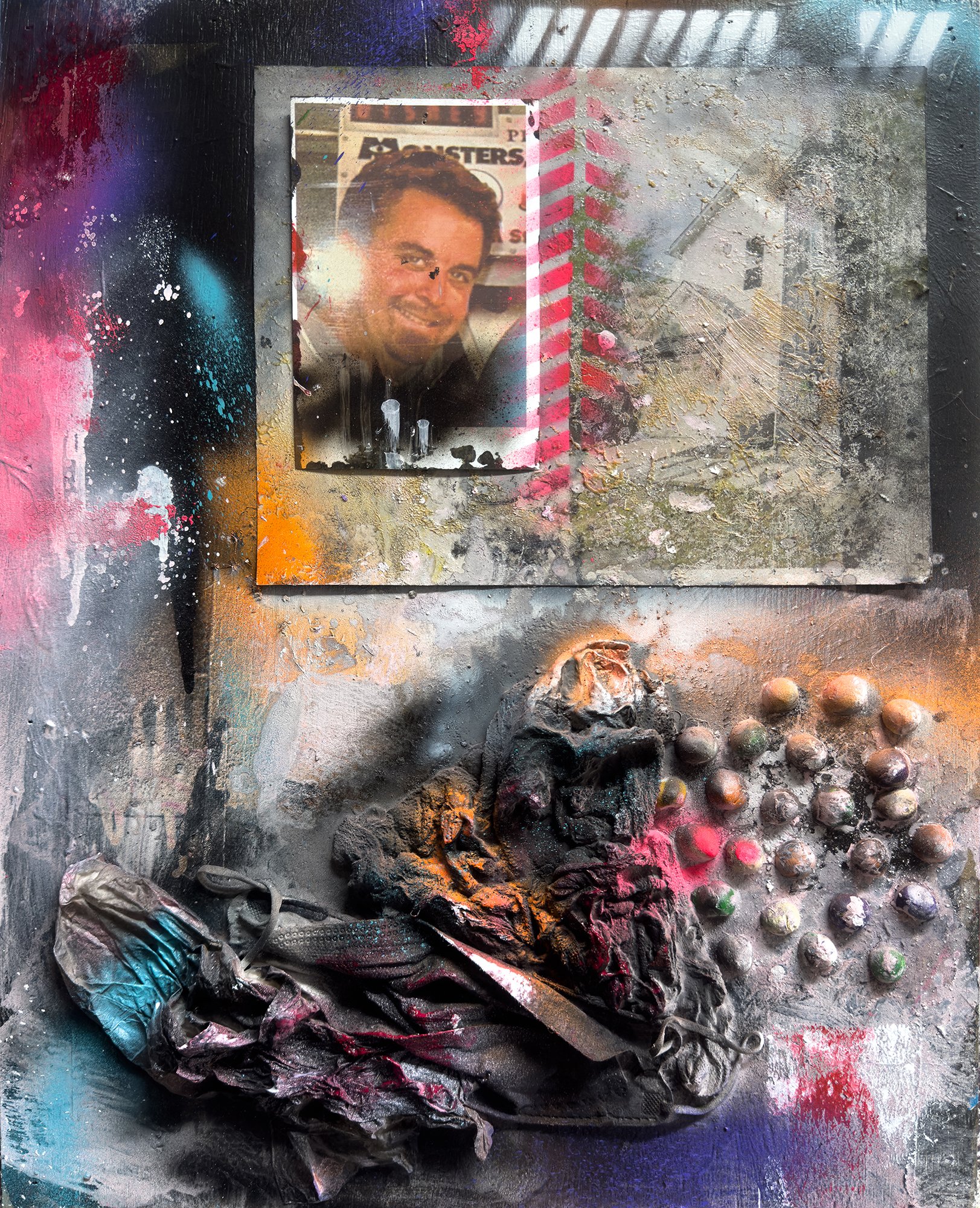
Banner image at the top: Angel-2000, by Eva Sainte Rose.
Learn more about the Low-Residency MFA in Visual Art – now accepting applications for the Summer 2025 entry.
The Low-Res MFA in Visual Art is supported by a grant from the Wege Foundation.
Additional reporting by Susan Metrican.
